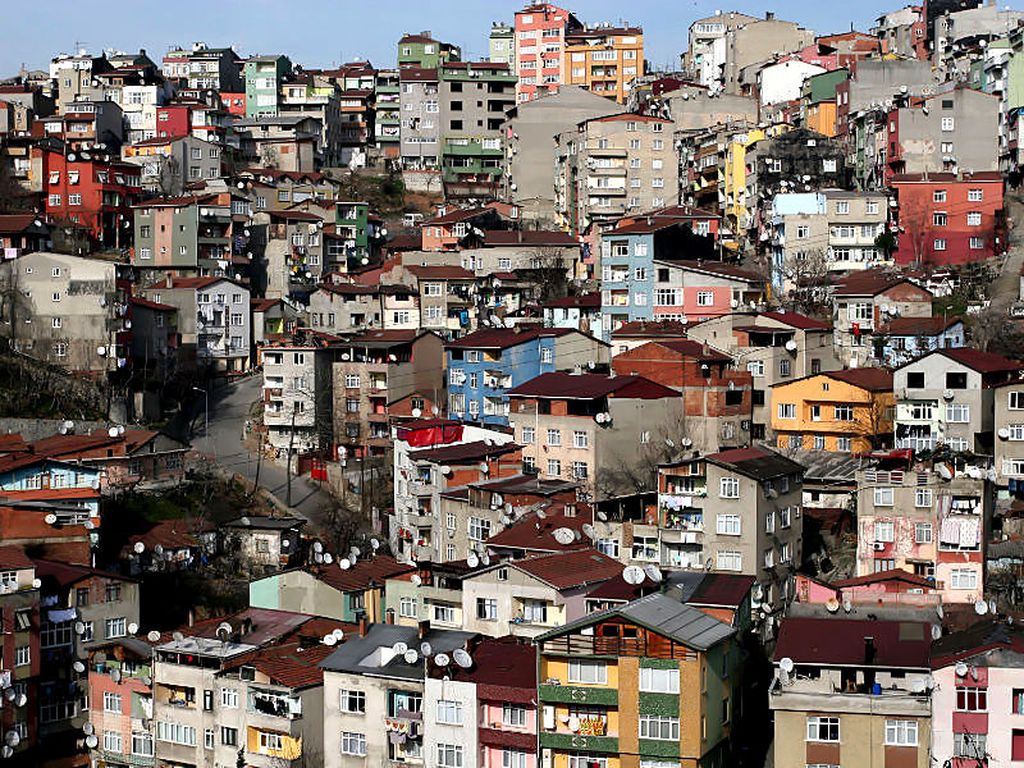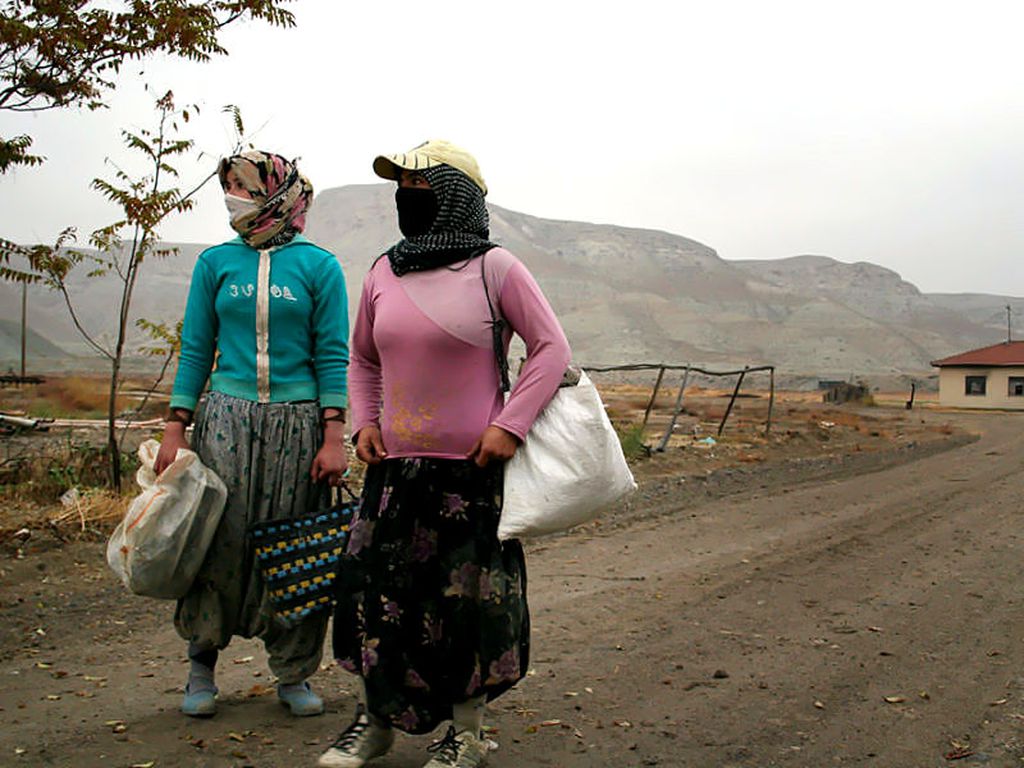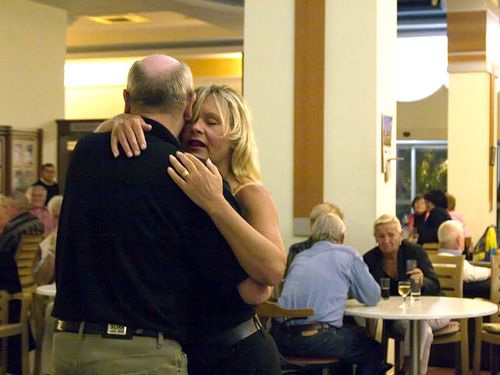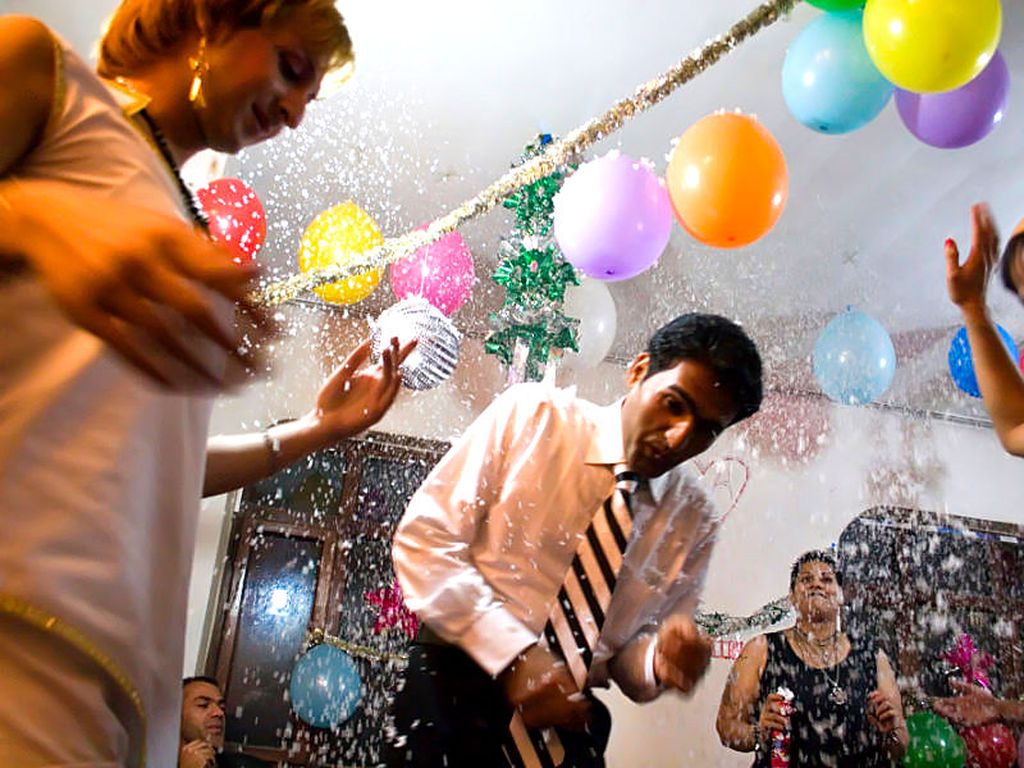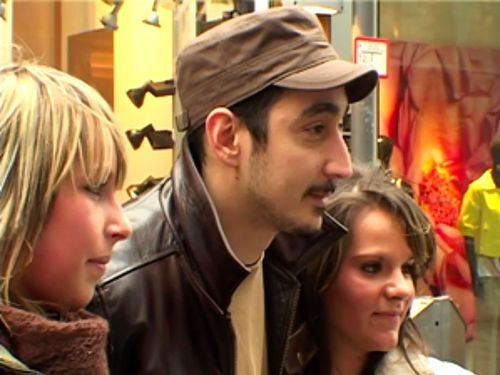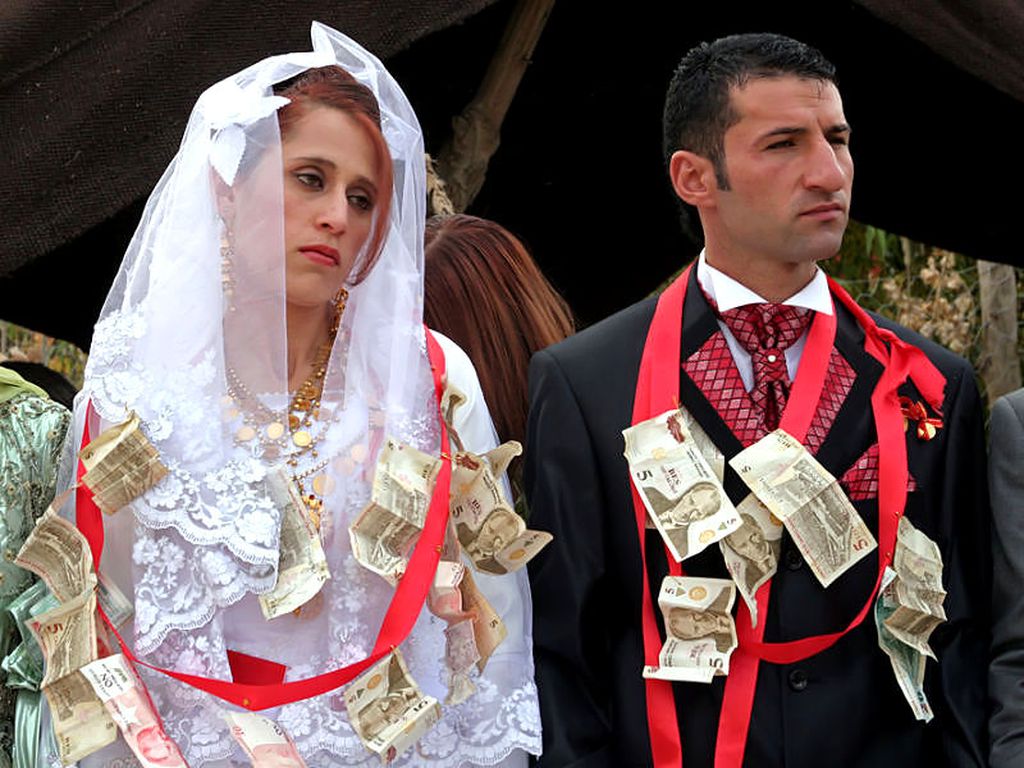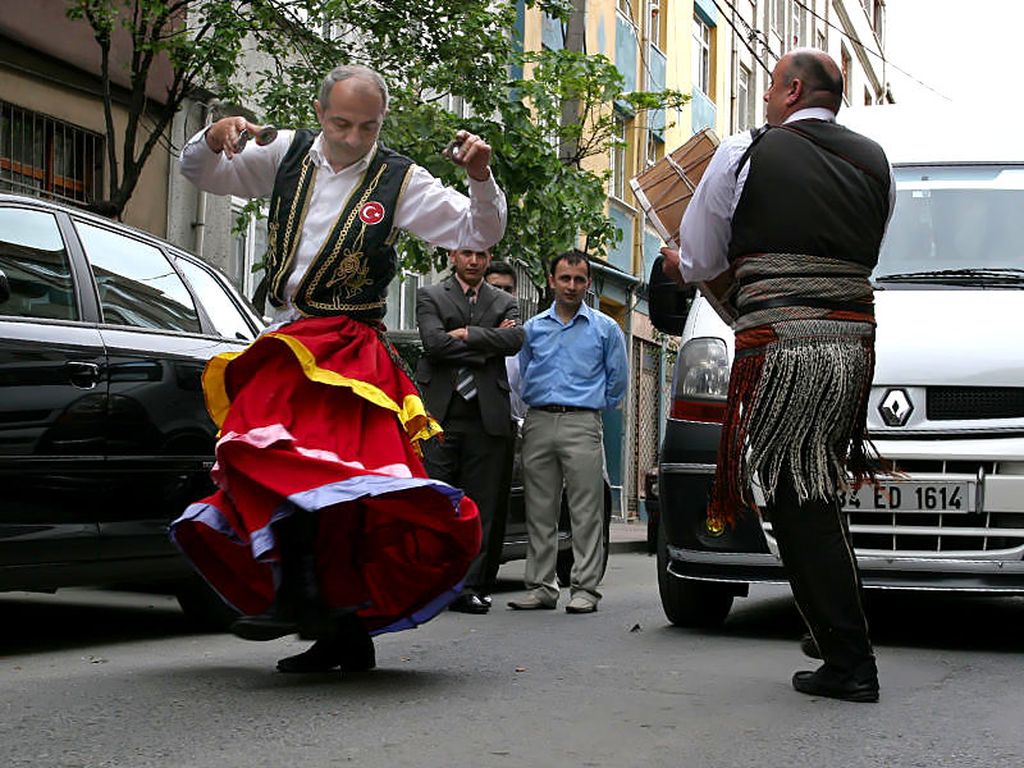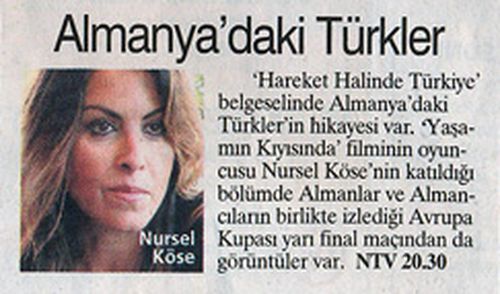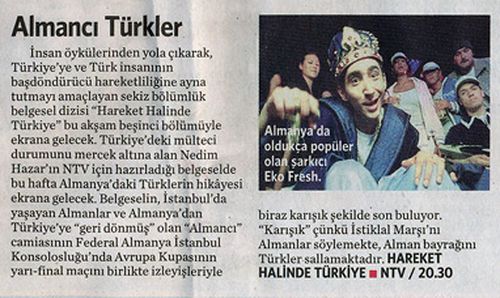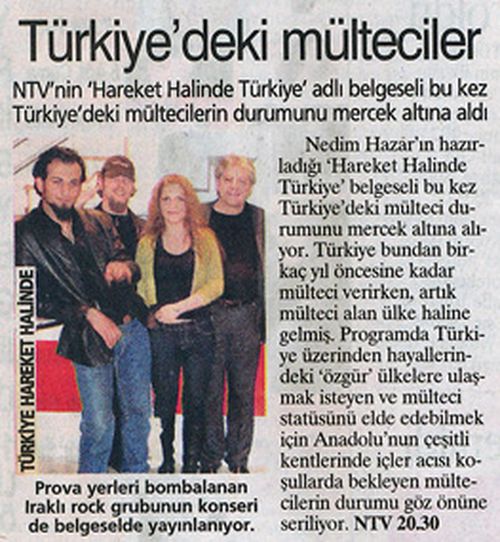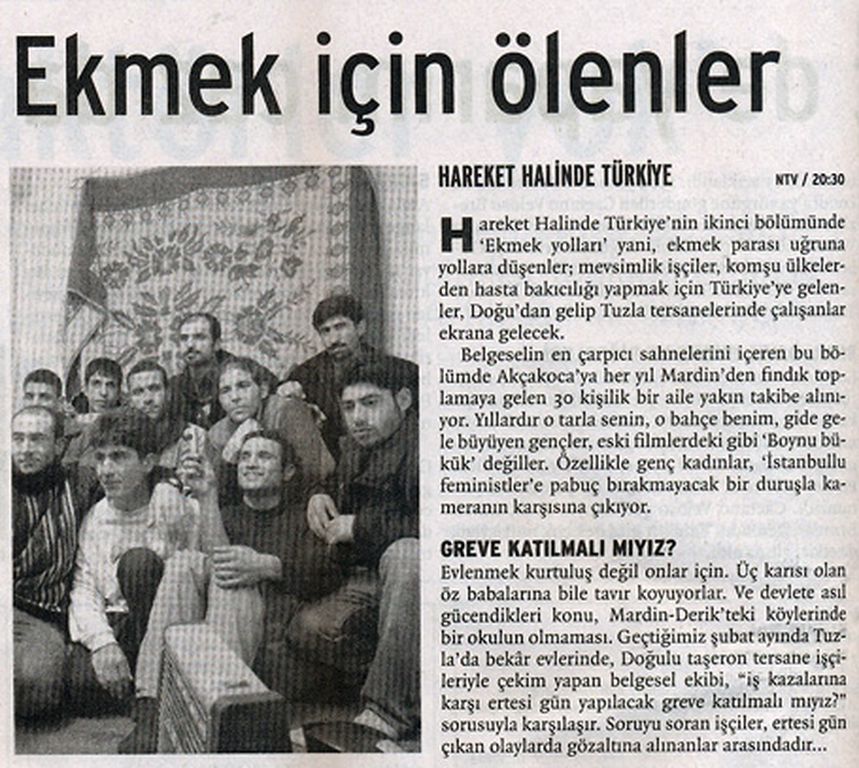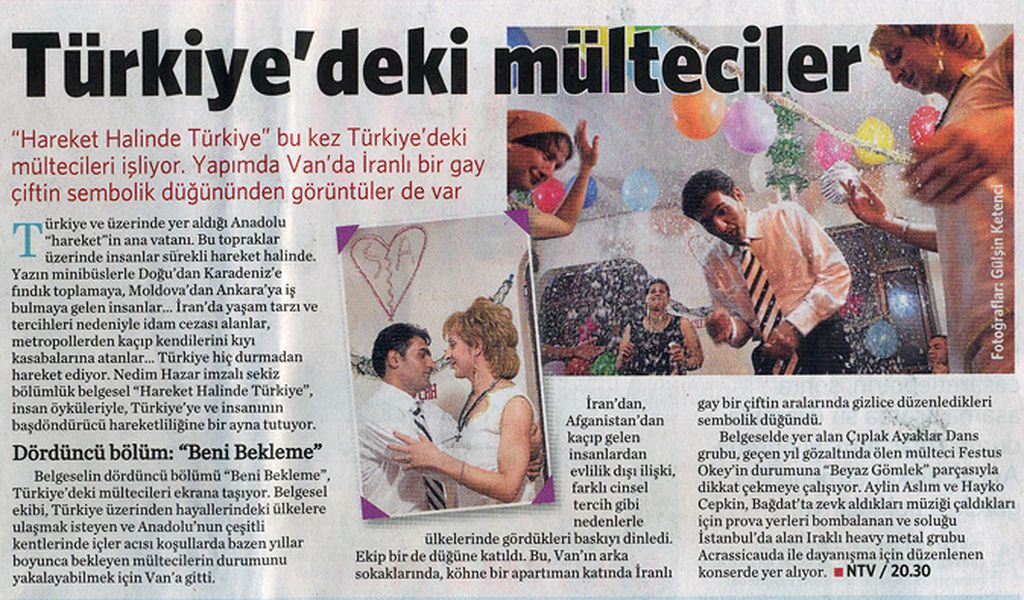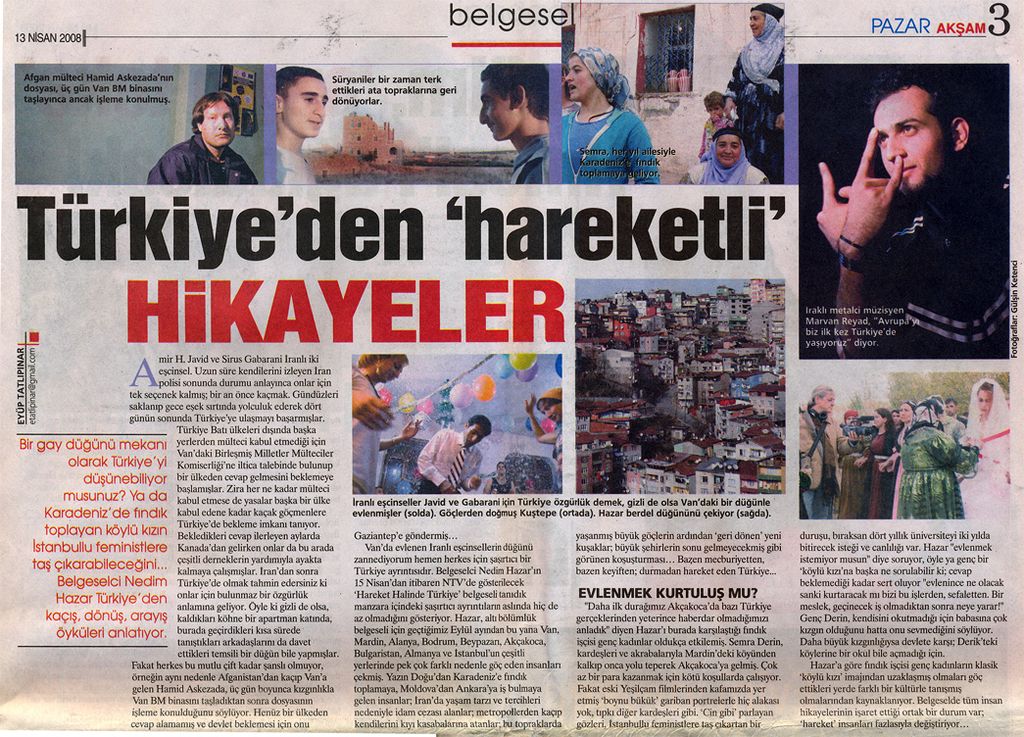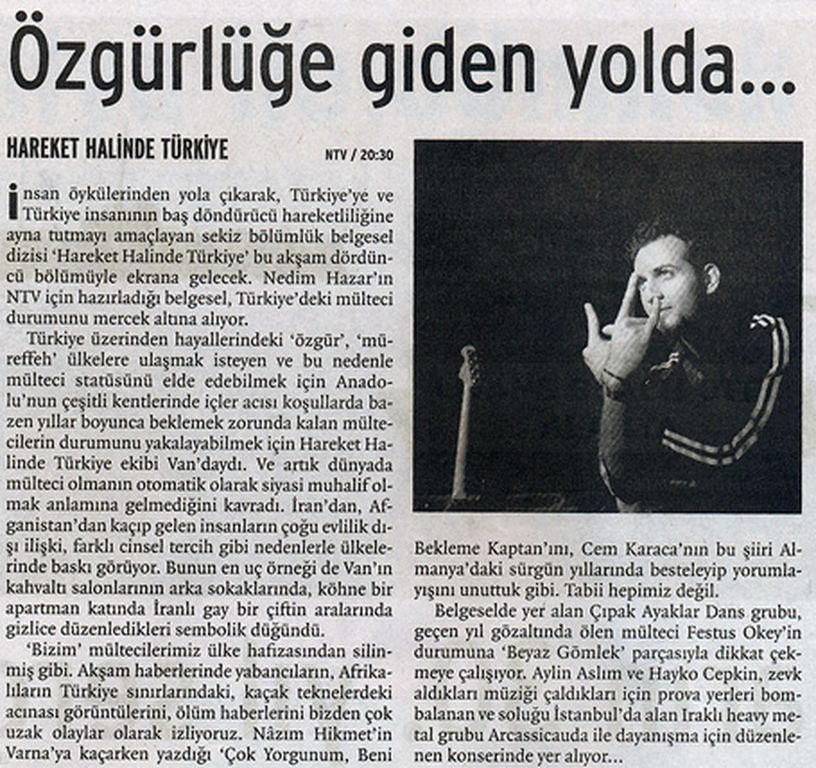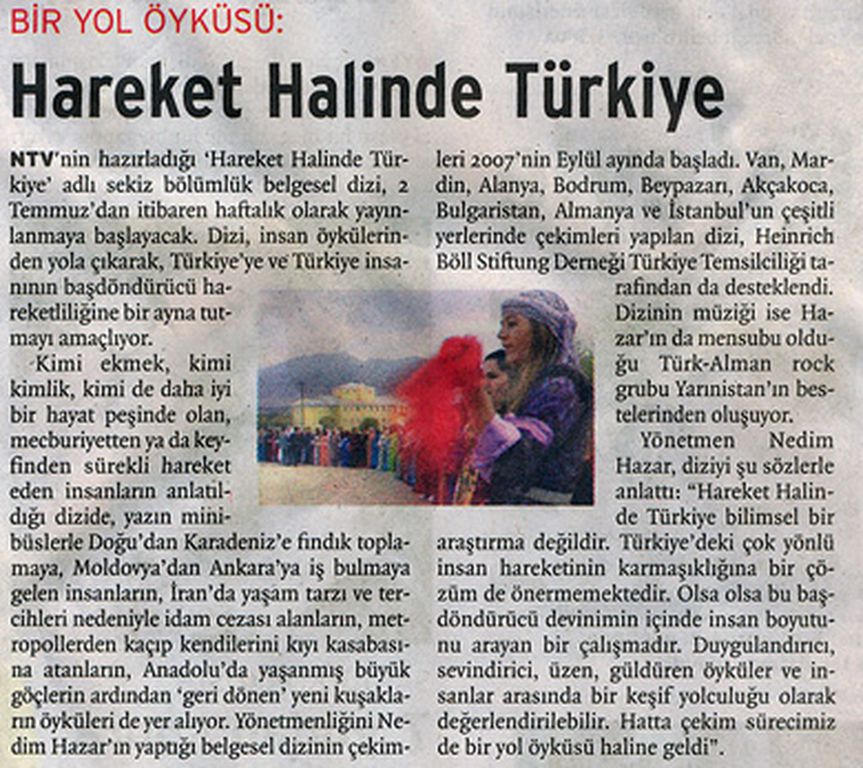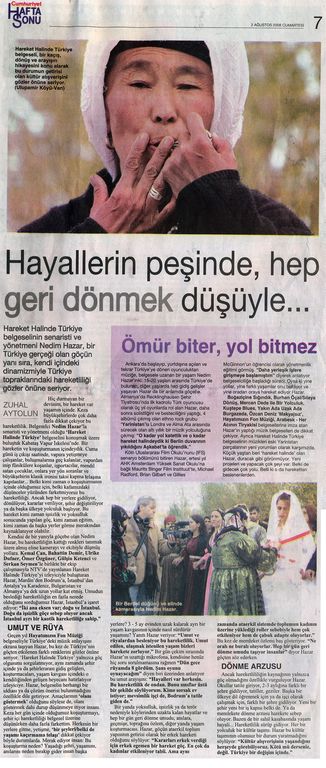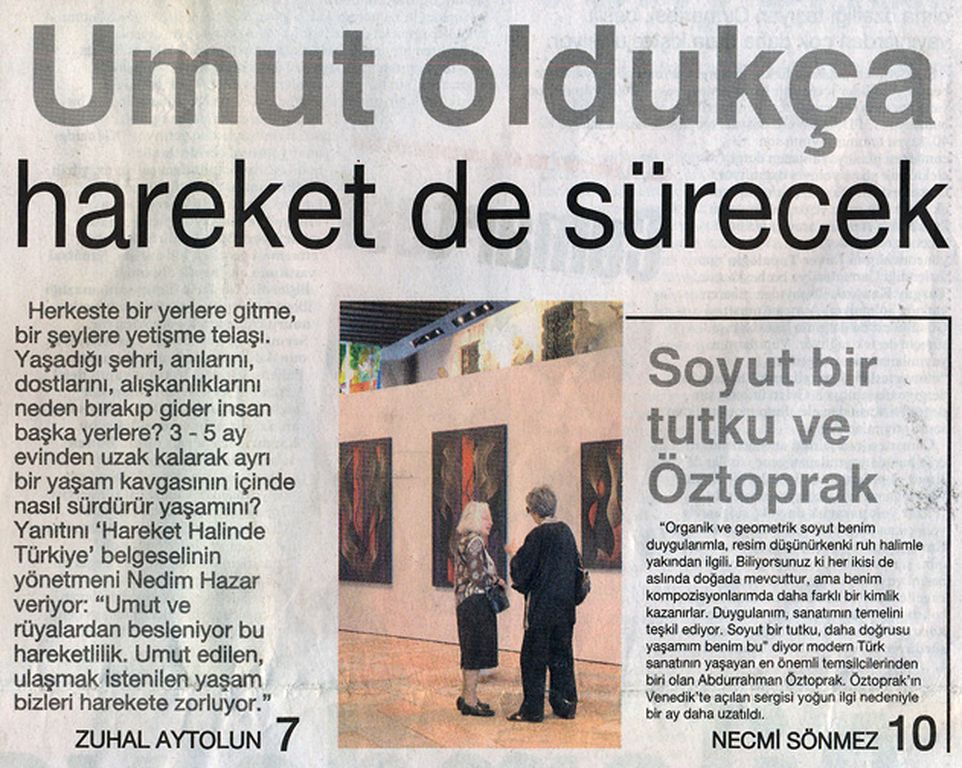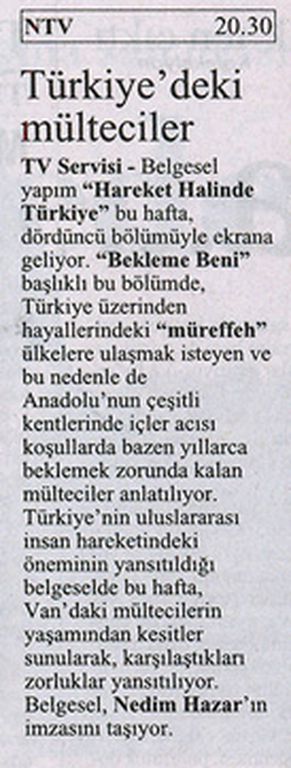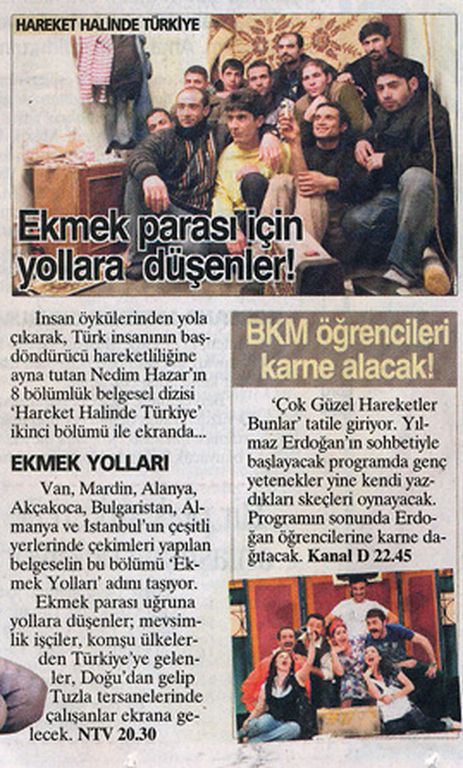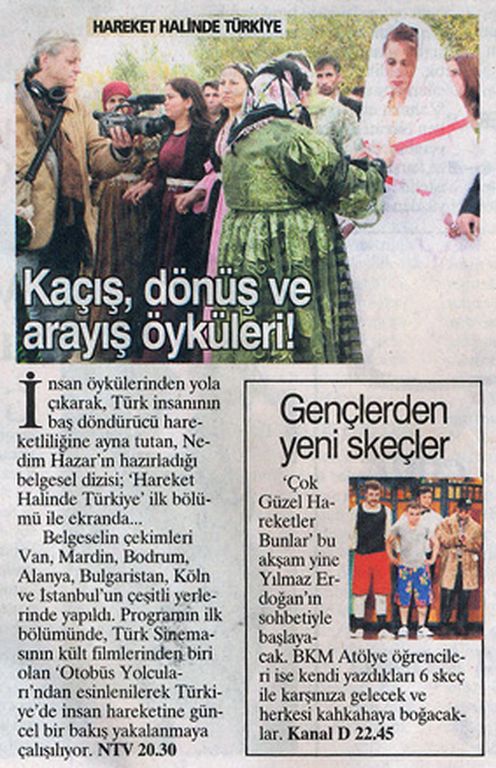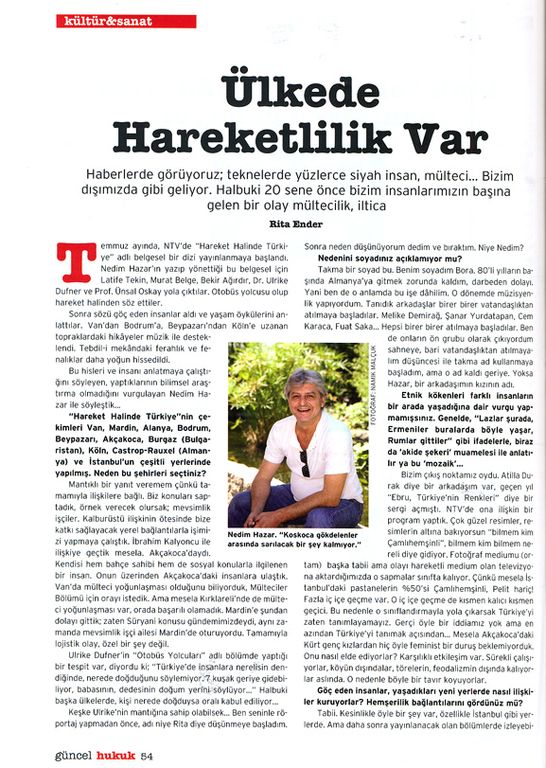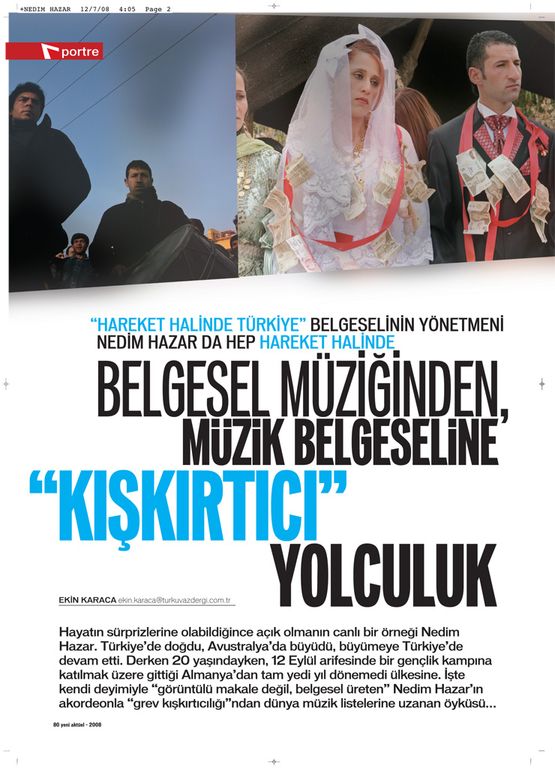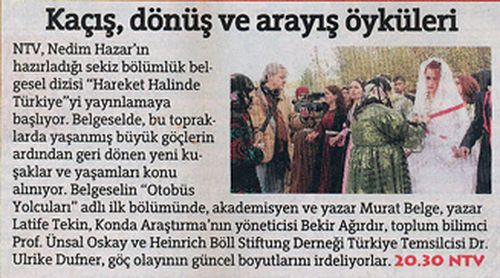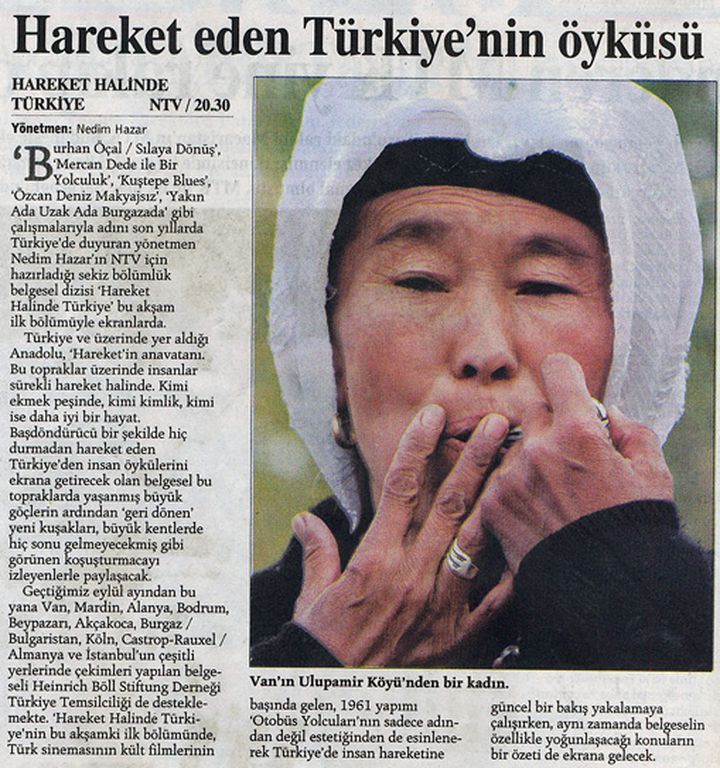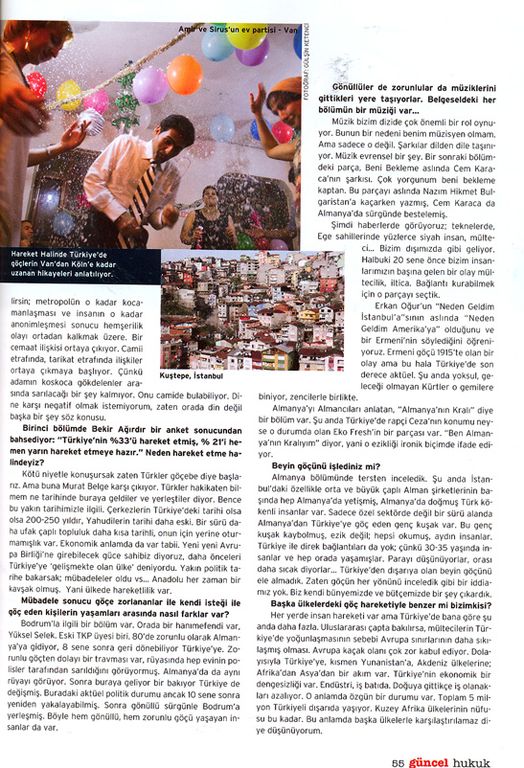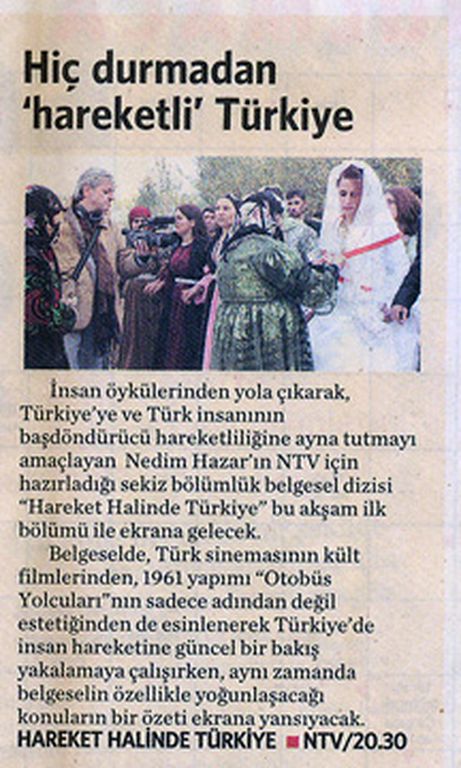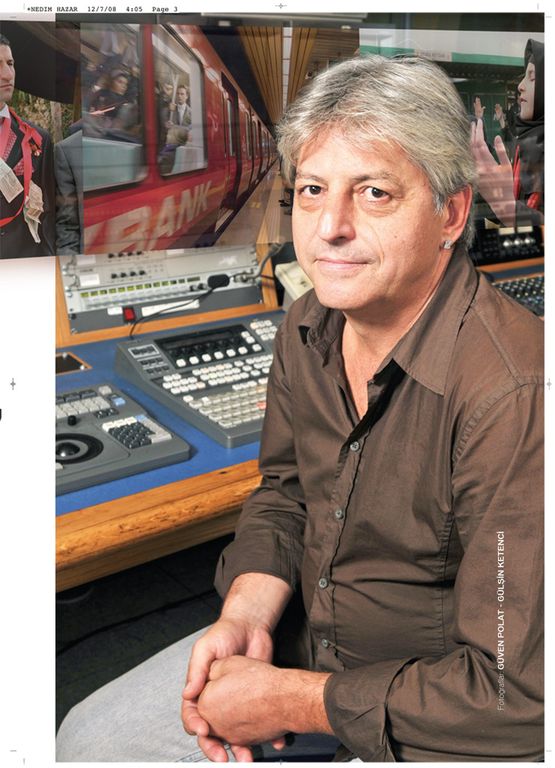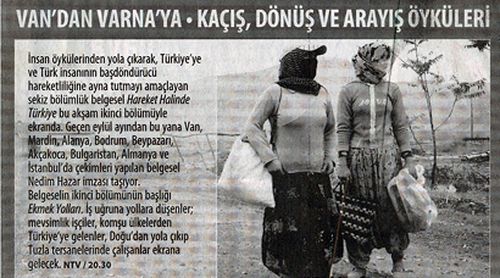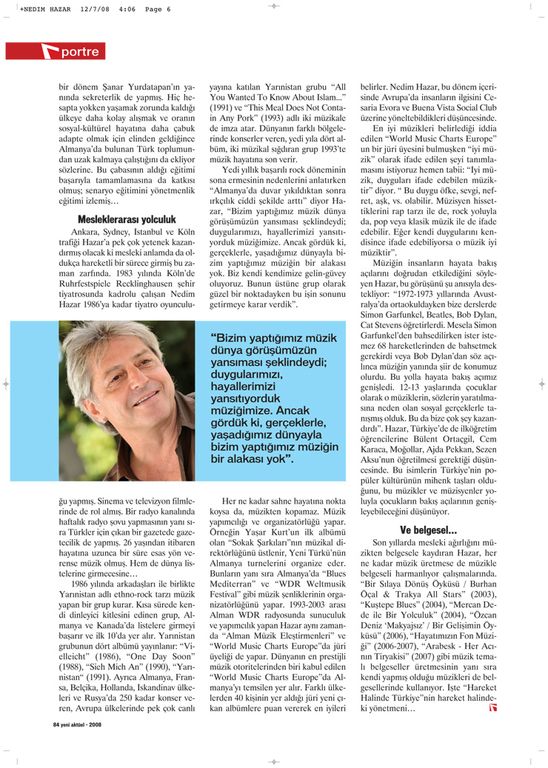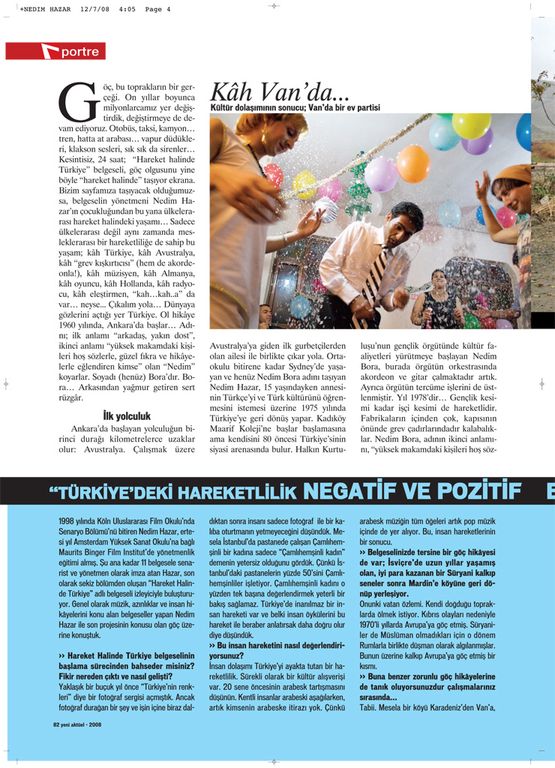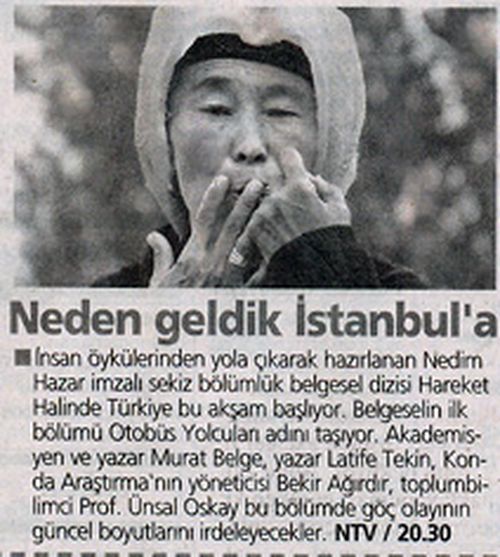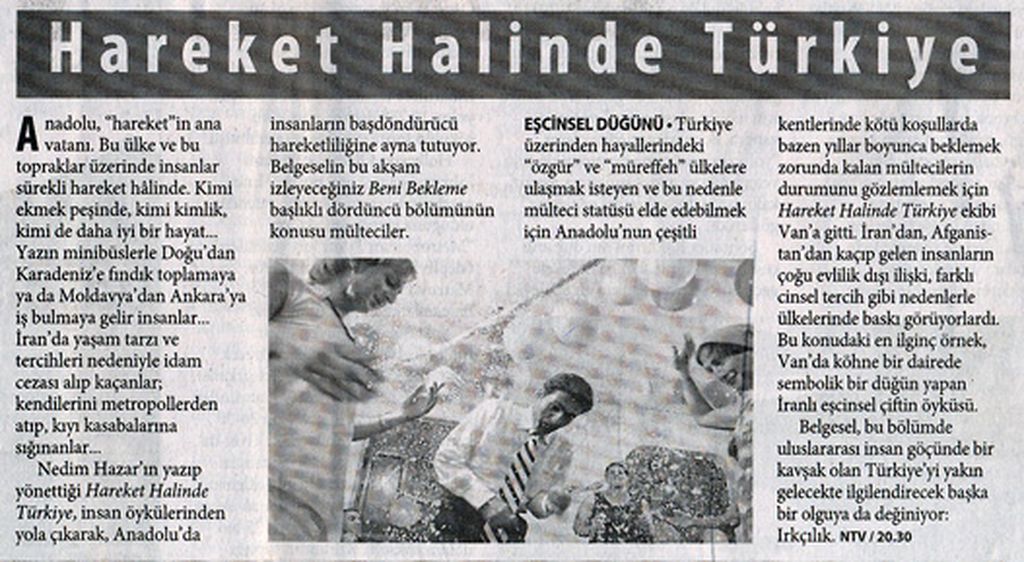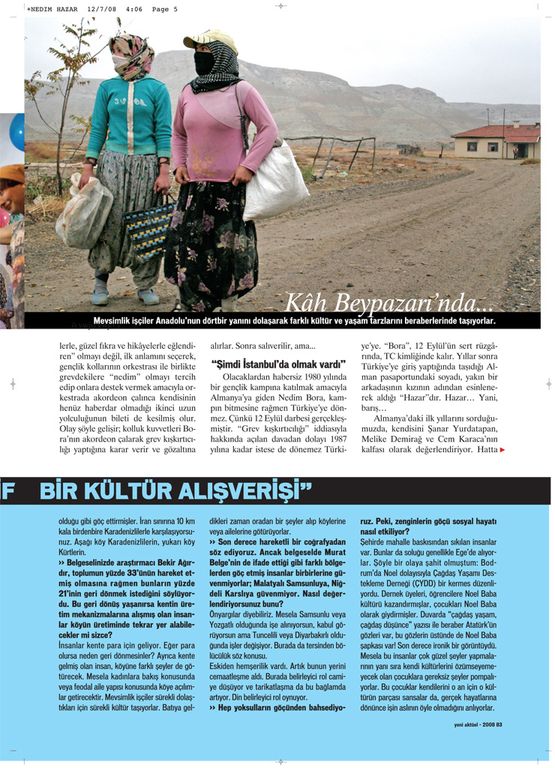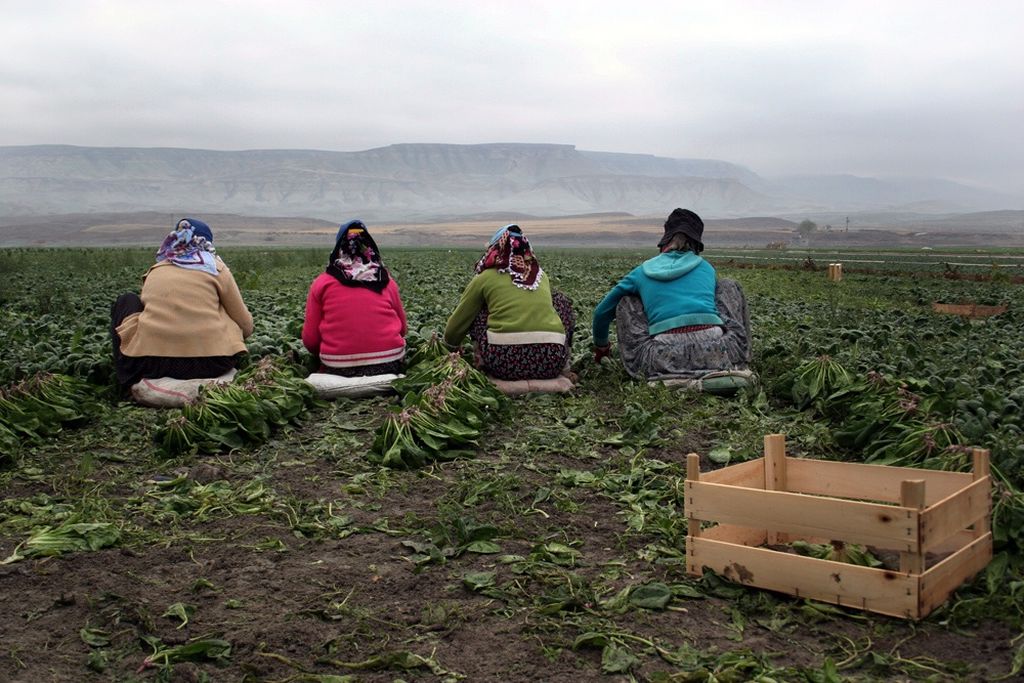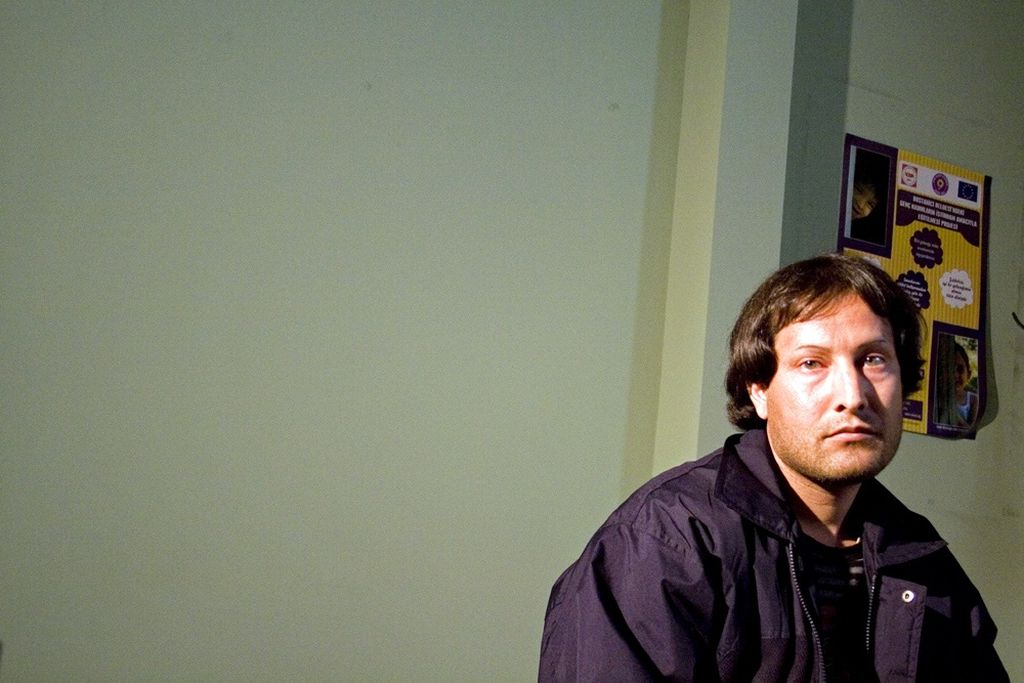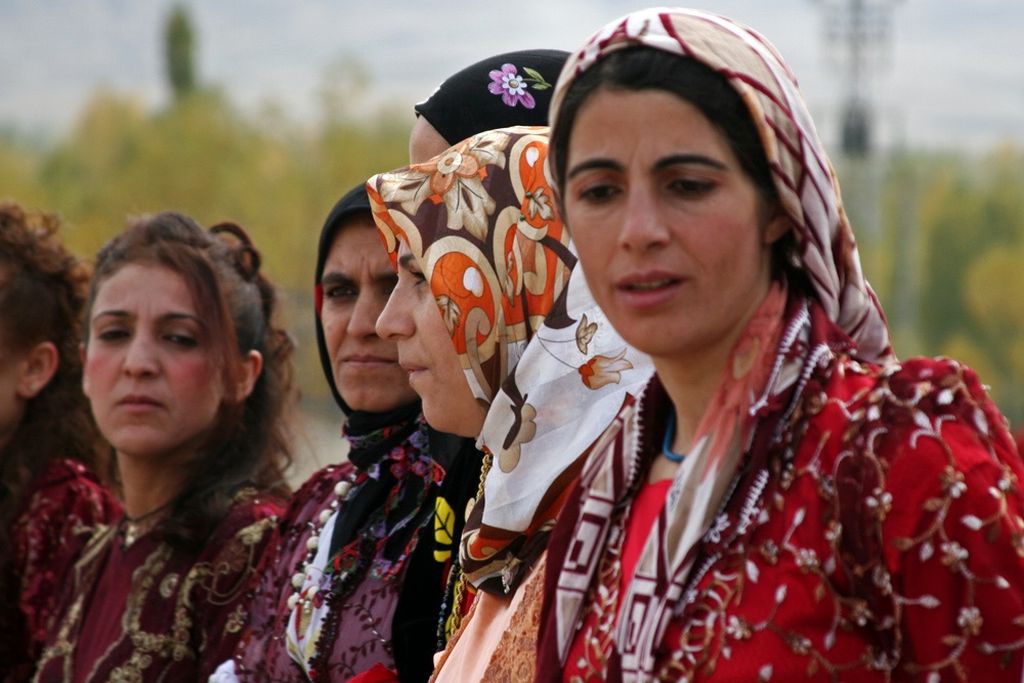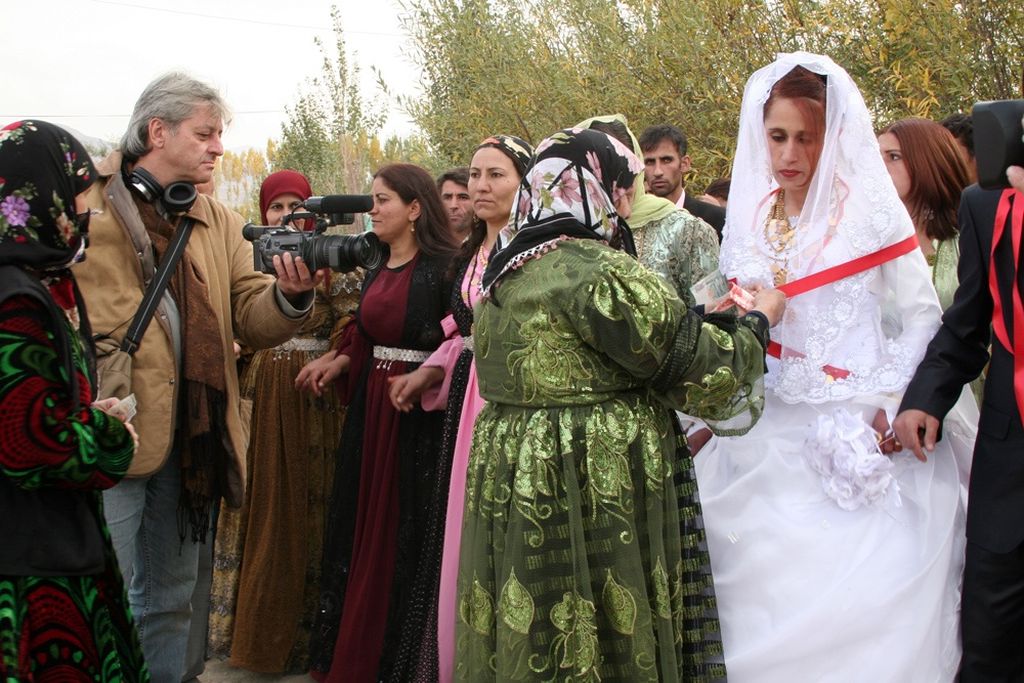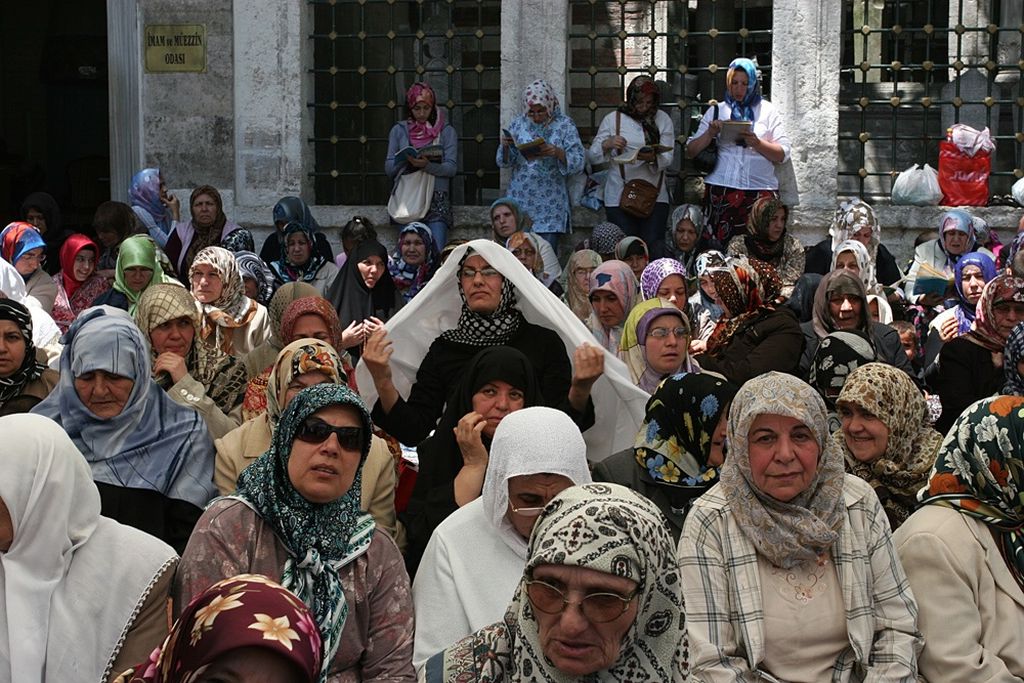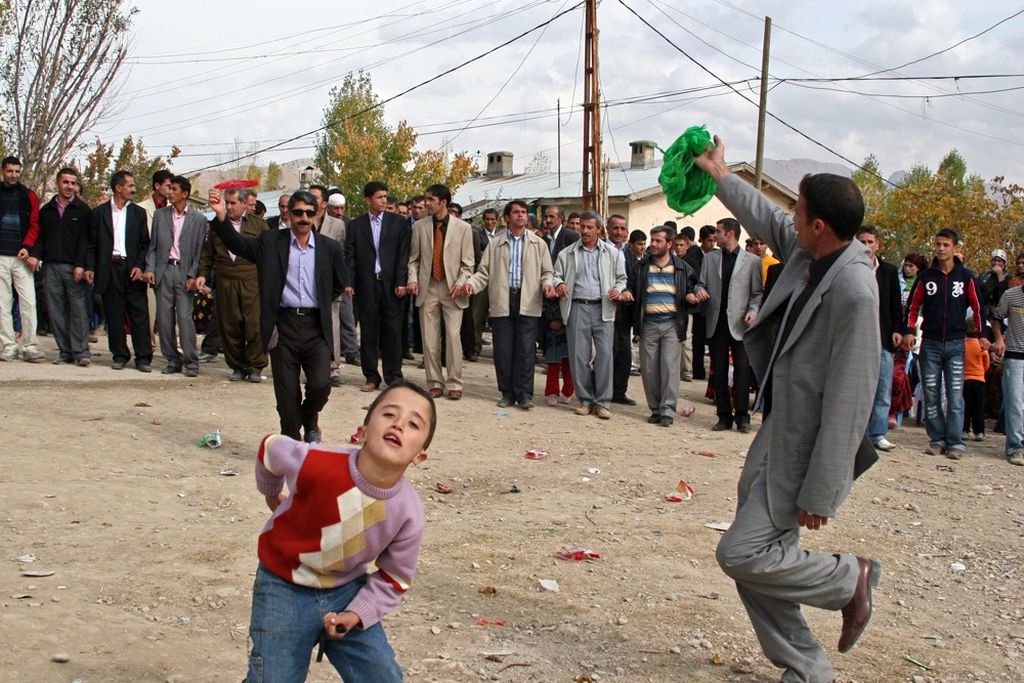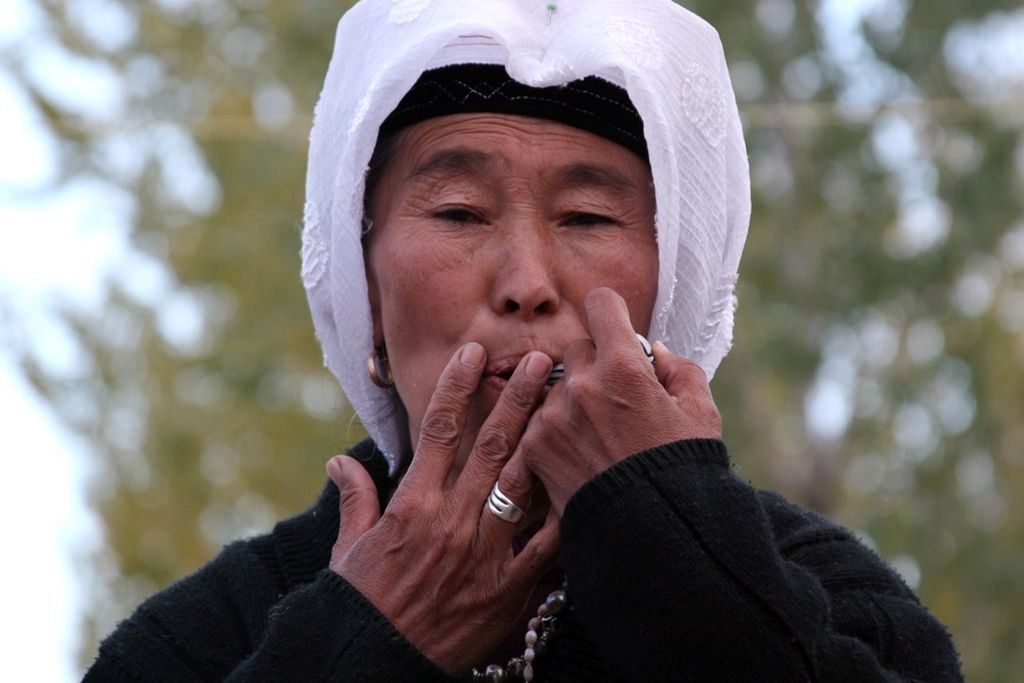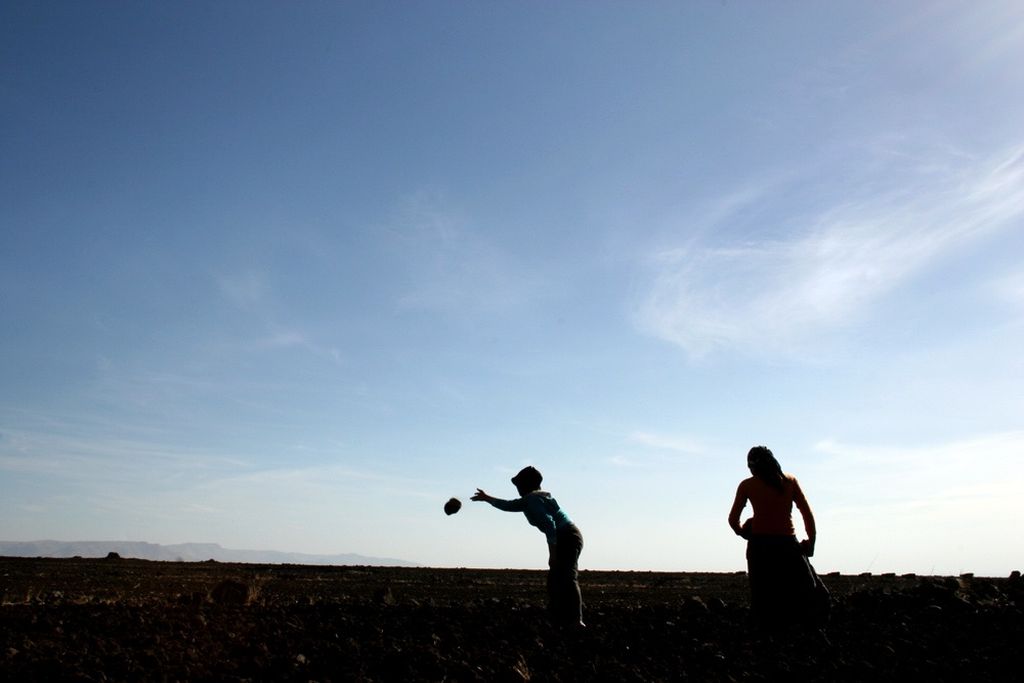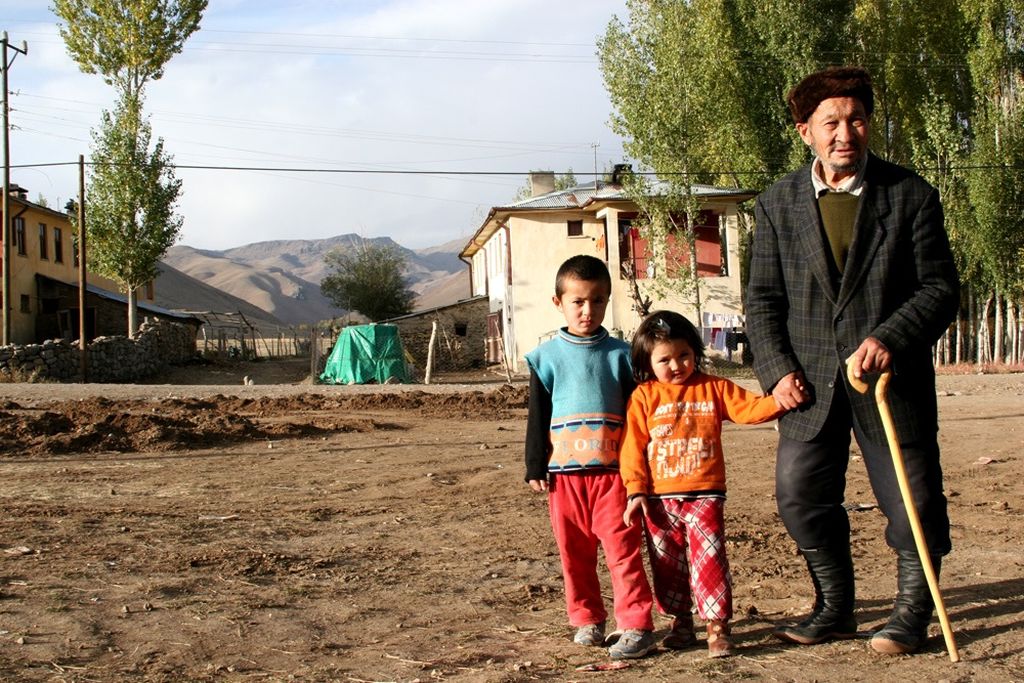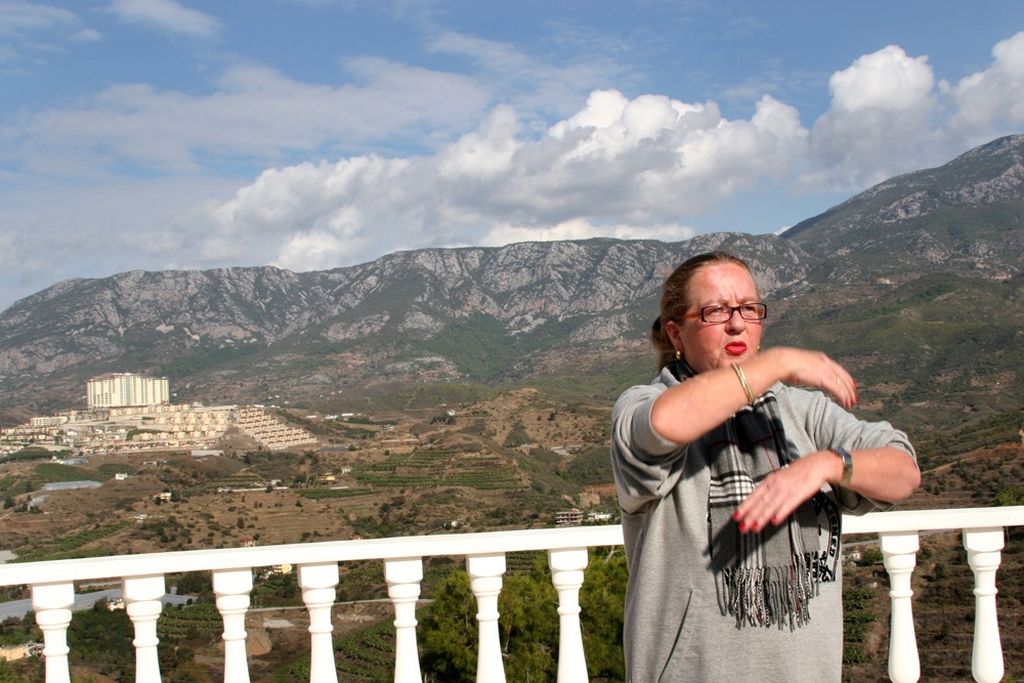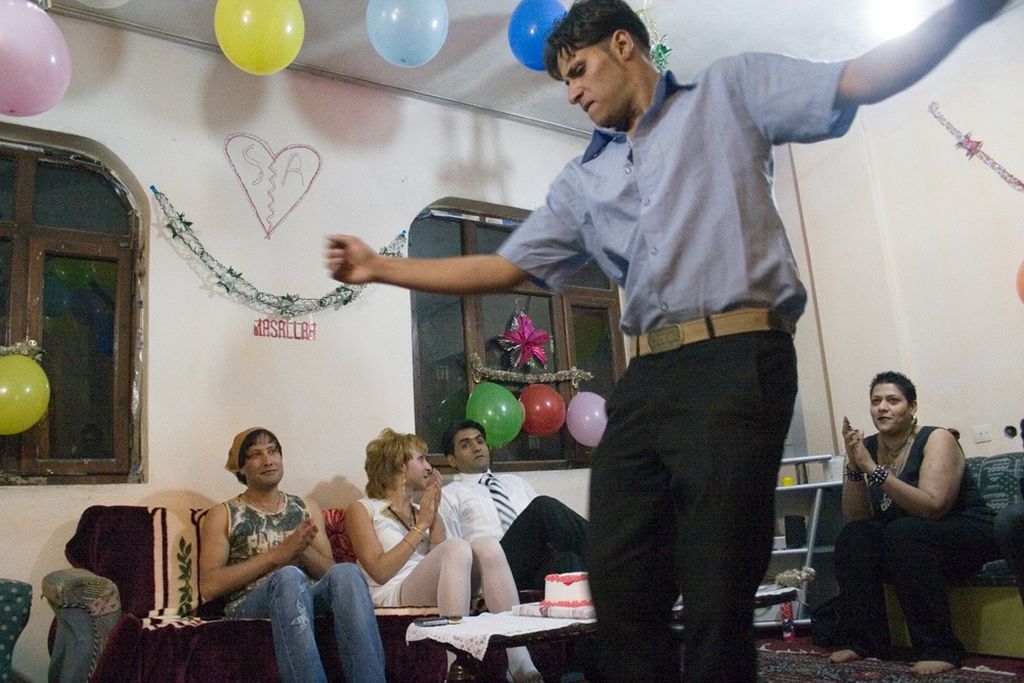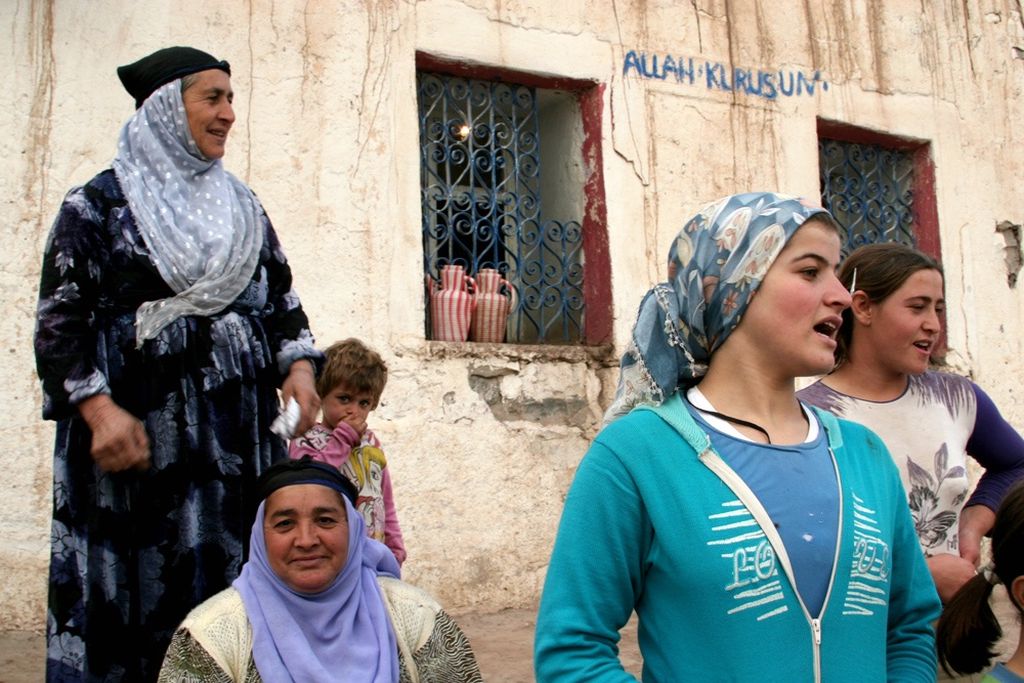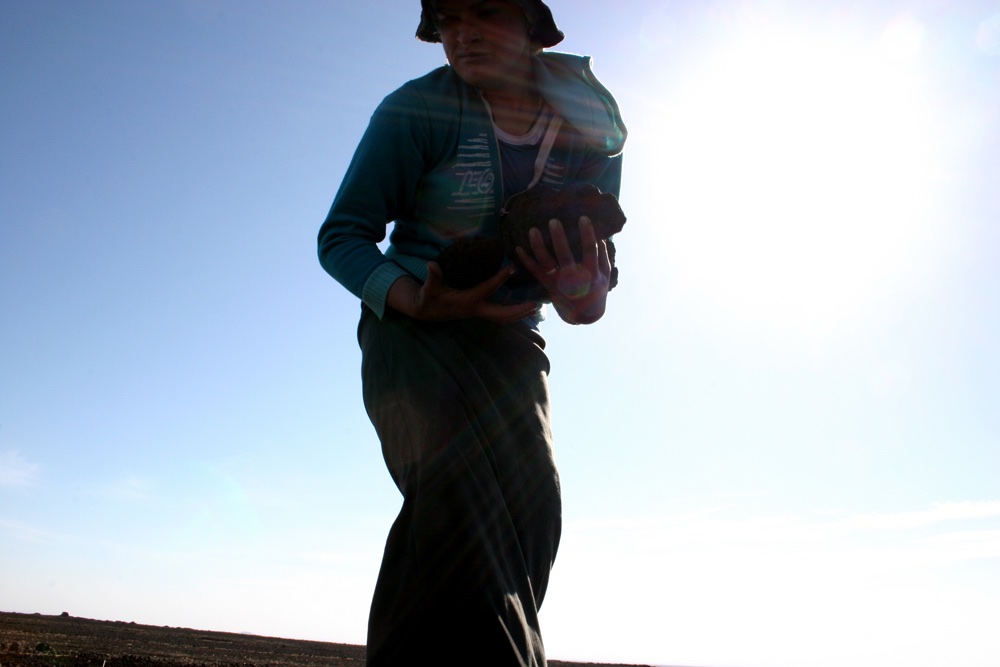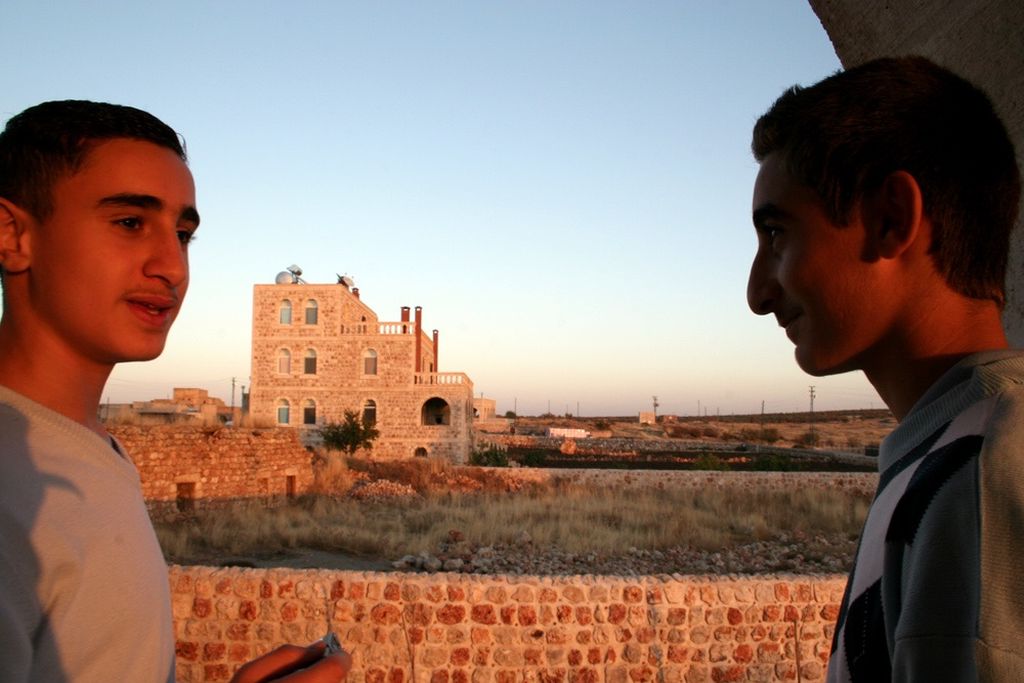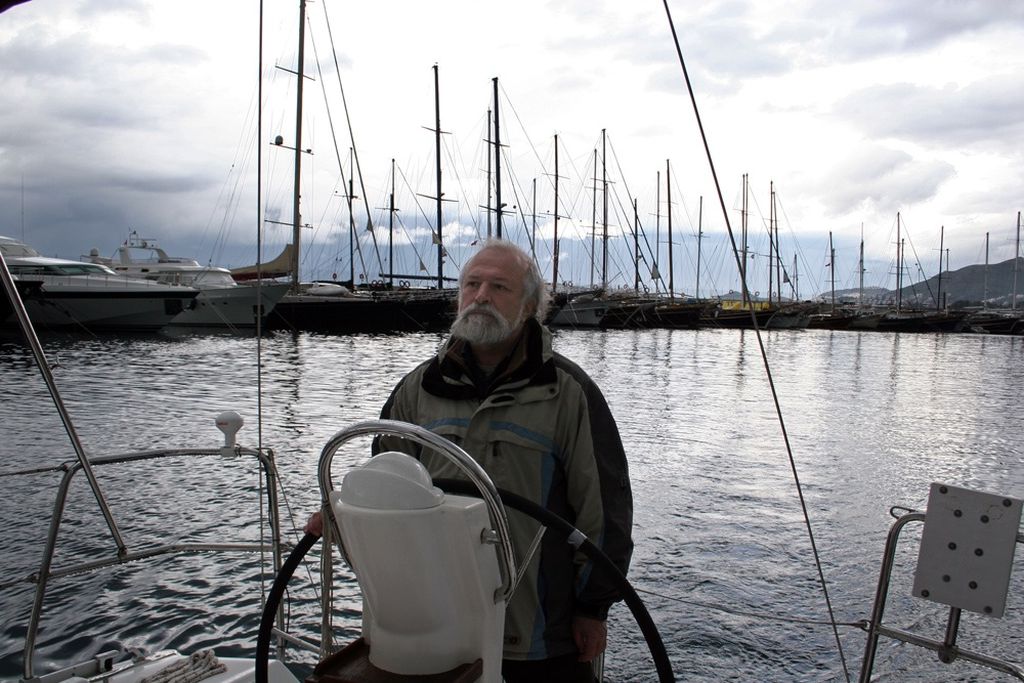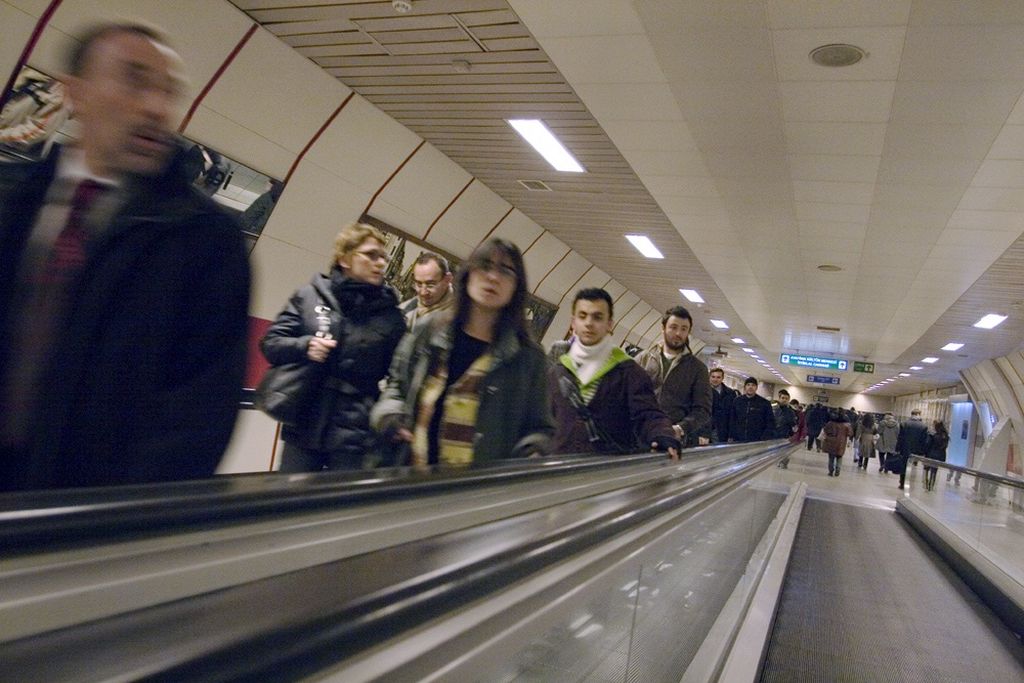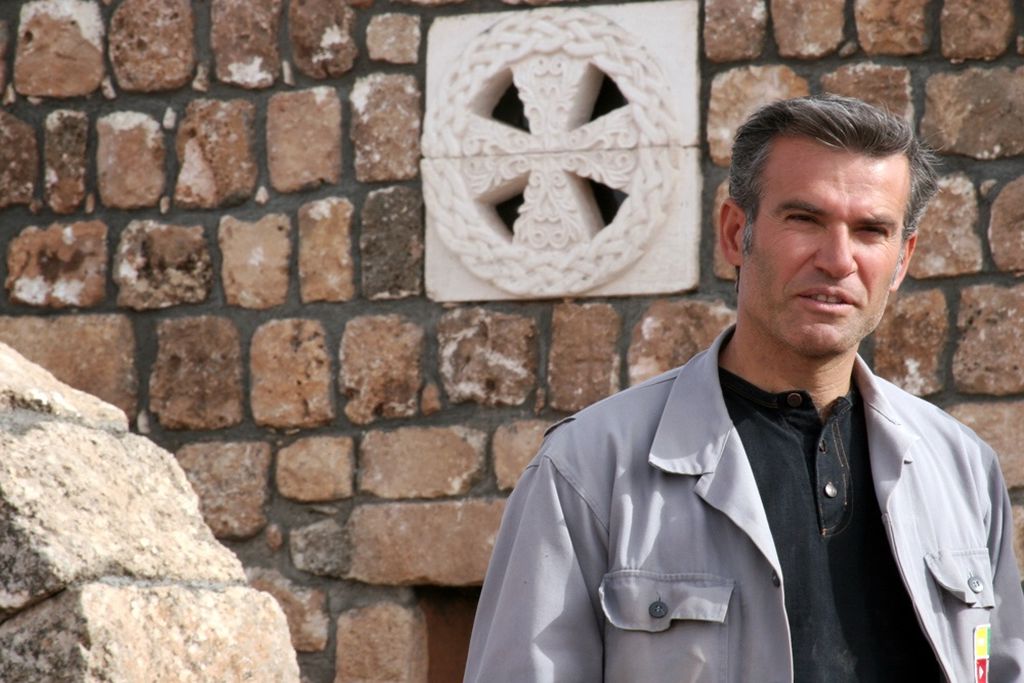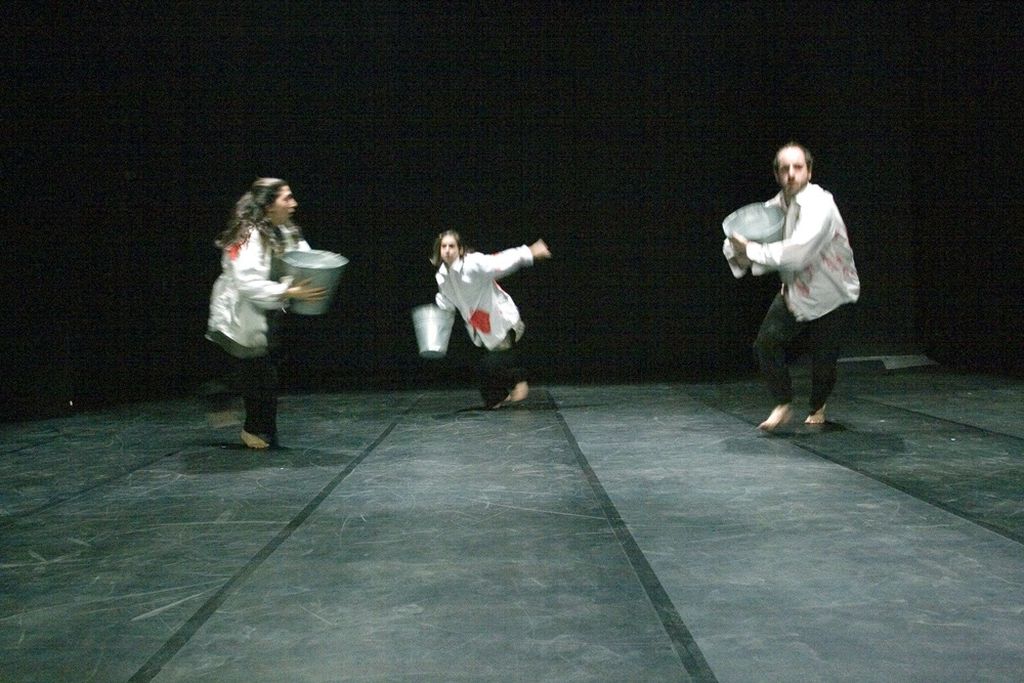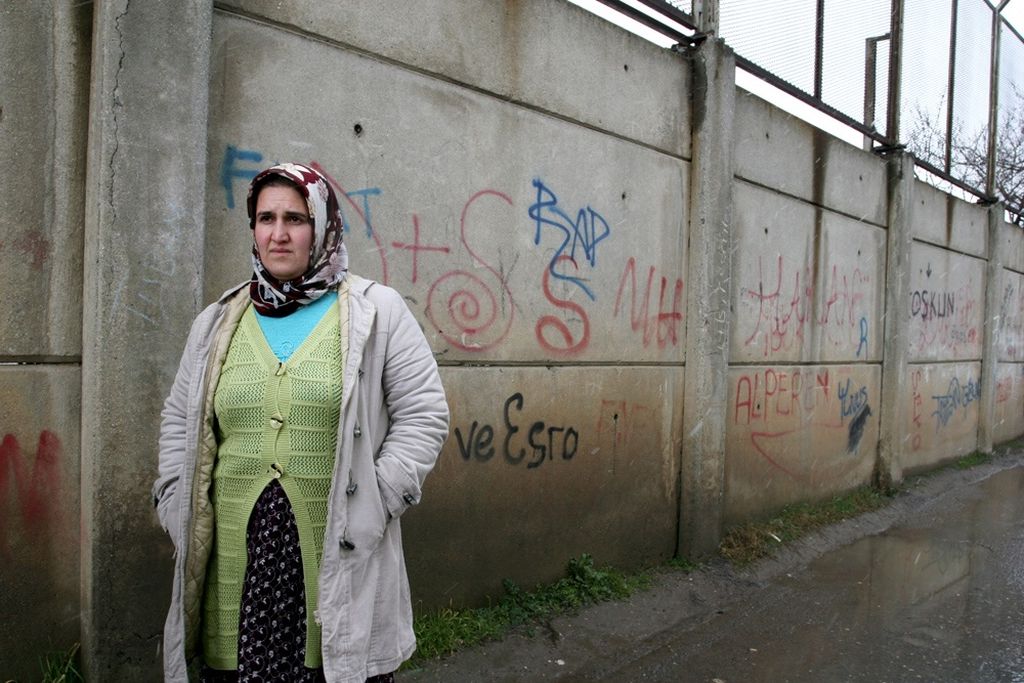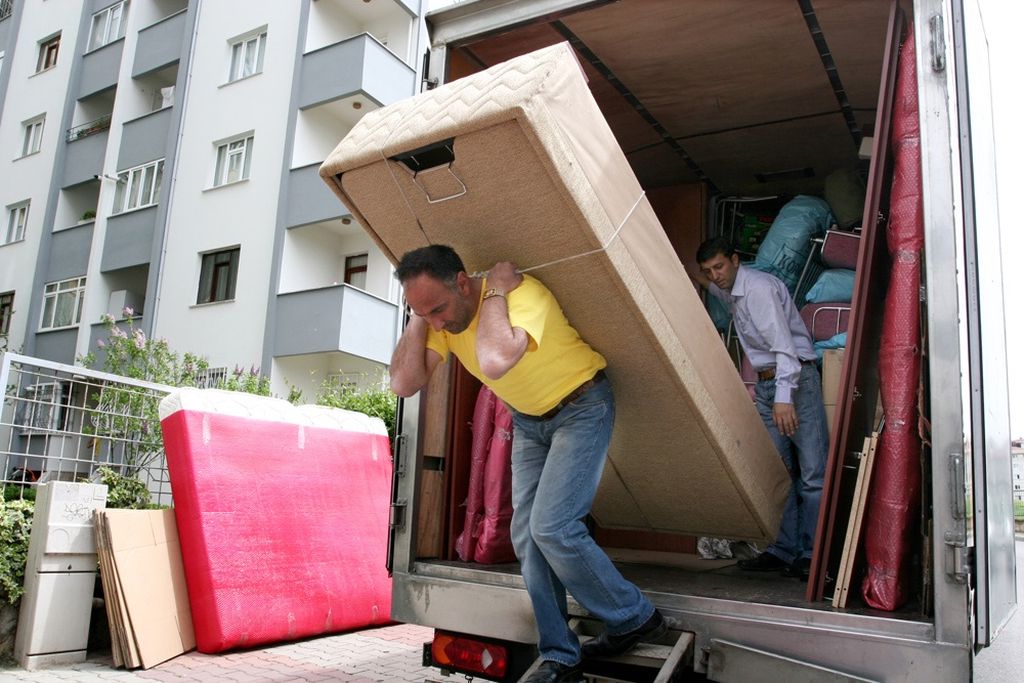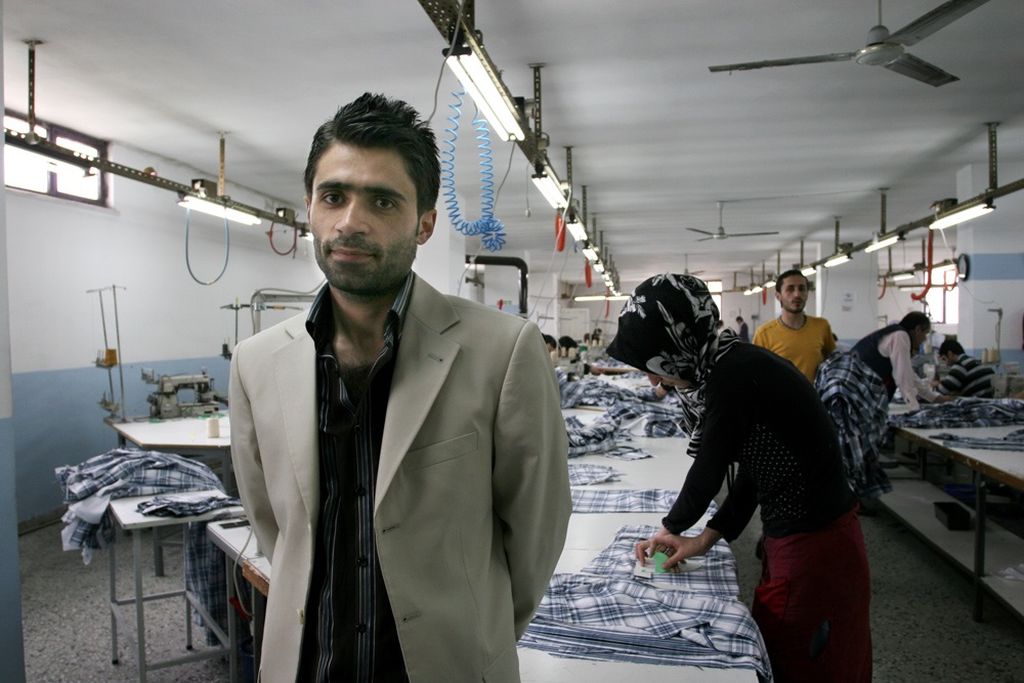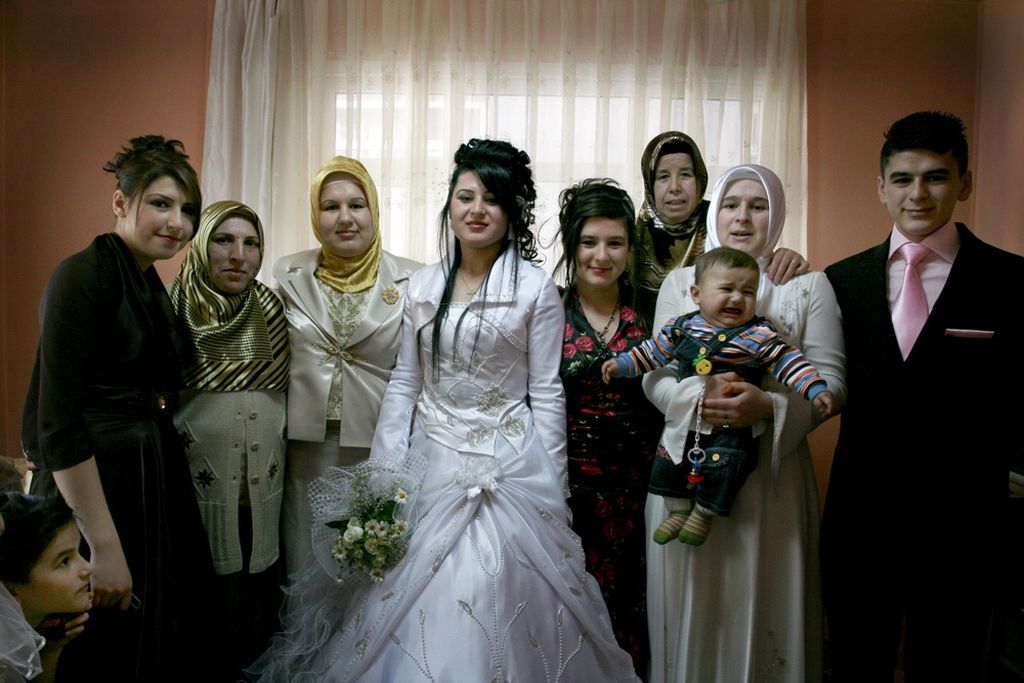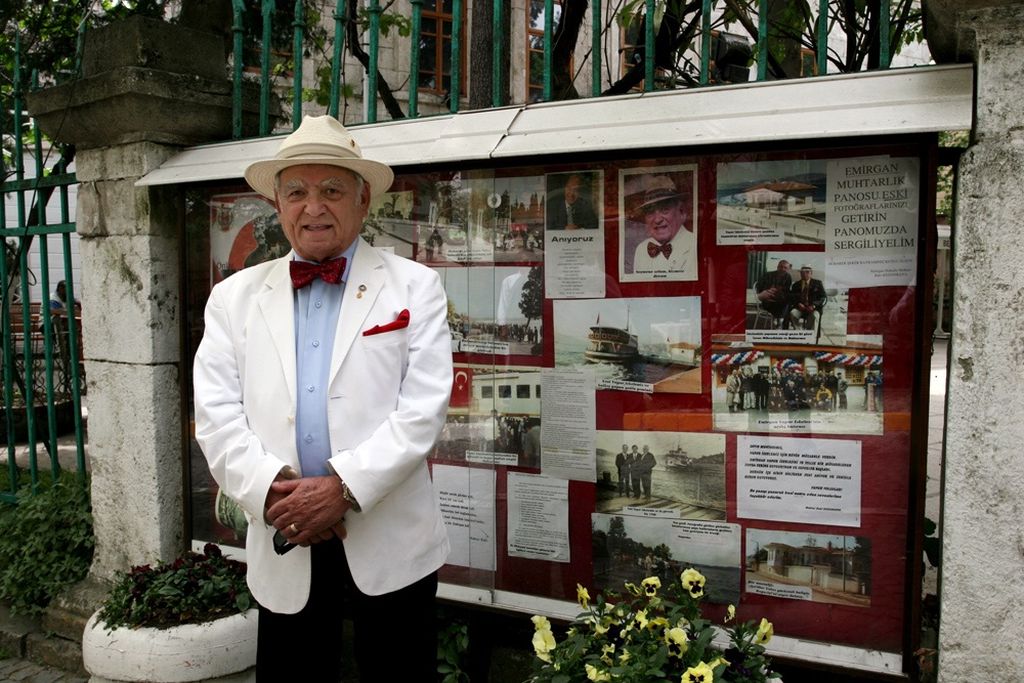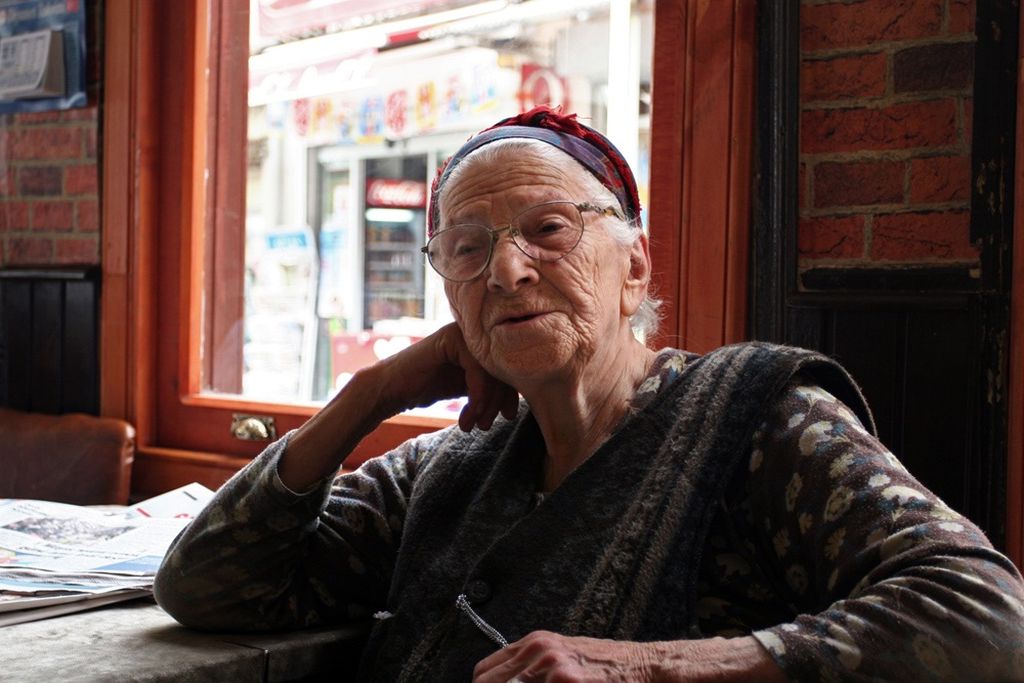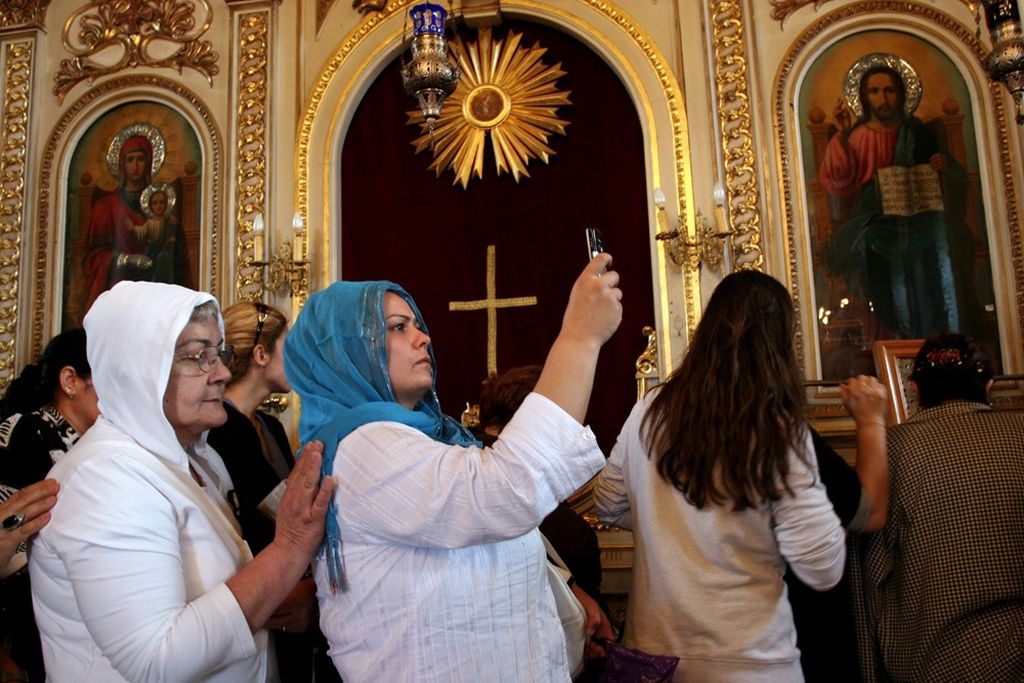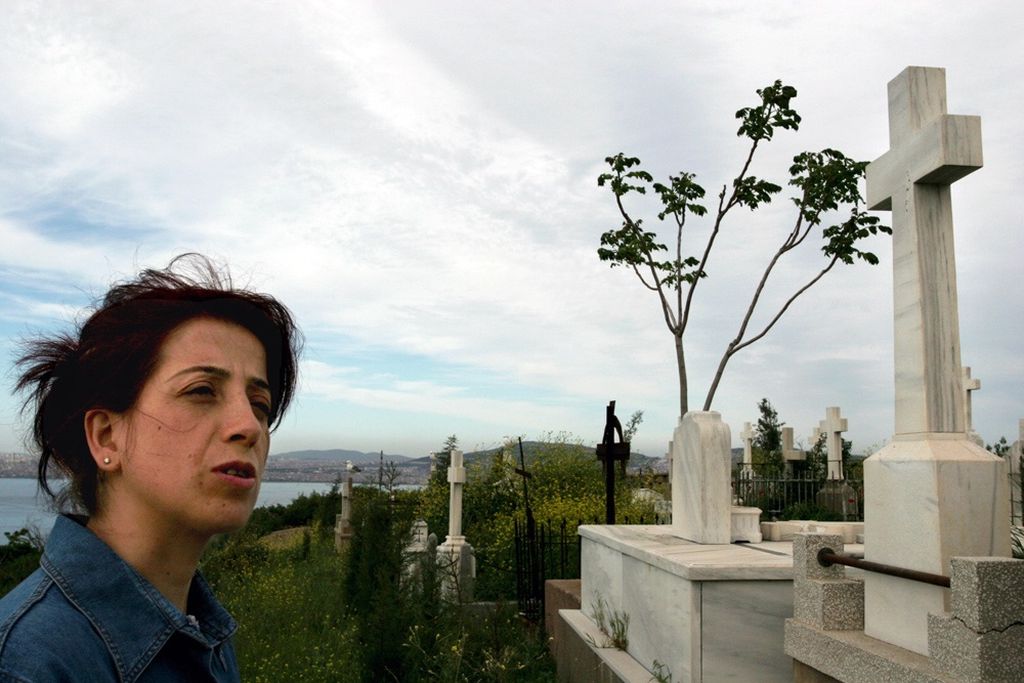Turkey is a country of constant fluctuation and migration. Only a quarter of the people live where they were born, according to Bekir Ağırdır. In the series, “Turkey on the Move”, he and other experts are interviewed together in a bus that rides non-stop through Istanbul’s streets.
Some come to the cities, Istanbul, Ankara, Izmir, Adana, Mersin and Antalya to find work, others go to Germany and live there currently in the fourth generation. Now there is also labour migration in the opposite direction. Hundreds of thousands of people from neighbouring countries; Georgia, Armenia, Romania or Bulgaria, some of which are EU countries, come to Turkey to serve mainly as private nurses until their tourist visas expire. Then they must go home and can enter the country again shortly after. The harvest on fields in western areas of Anatolia is unimaginable without seasonal workers from the Kurdish regions.
Then there is coming of age migration. Since the state pension is hardly sufficient for living in expensive big cities, millions of pensioners move to small towns on the Aegean coast and the Mediterranean. There, food is still affordable and fresh. At the time of the filming of this series, the coastal cities of Turkey were also financially very attracting for German pensioners. Those who could afford it lived in bungalows and small villas for summer vacationers. Thousands of German citizens lived as permanent guests in hotels, even in winter. Hotels in Turkey was cheaper than living costs in Germany.
Even before the war in Syria, Turkey was a stopover point for refugees from Africa and neighbouring countries such as Iran, Afghanistan or Iraq.
Last but not least, there is the forced migration. Due to political crises between Greece and Turkey, tens of thousands of Greeks living in Istanbul and on Aegean islands that belonged to Turkey were forced to leave the country in the 1960s and 70s. This measure was against international agreements. As alleged military manoeuvres against PKK guerrillas, thousands of Kurdish villages were evacuated in the 1990s and 00 years and then burned. Their uprooted inhabitants ended up on the fringes of the eastern cities and in the west.
The political situation in Turkey in 2008 was different from what it is today. The Turkish government was in the middle of entry negotiations with the EU. Thus “Turkey on the move”, which deals with such sensitive issues, could be broadcast primetime without any problem. Highly praised by the press and in the social media, the series received high ratings.
All parts following have English subtitles.
WRITTE AND DIRECTED BY
Nedim Hazar Bora
DIRECTOR OF PHOTOGRAPHY
Bahattin Demir
LINE PRODUCER
Gülşin Ketenci
MUSIC
Yarinistan
Savaş Zurnacı
Murat Süngü
COMMISSIONING EDITOR
Kemal Can
PRODUCTION
NTV
BROADCAST
NTV
SPONSOR
Heinrich Böll Foundation - Turkey
All Parts
Prologue - The Bus Passengers
Inspired by the Turkish cult film “Bus Traveler” which was produced in 1961, the prologue of the documentary series consists of a bus trip with experts and film excerpts from the upcoming episodes. The passengers; publicist Murat Belge, writer Latife Tekin, Bekir Ağırdır, head of an opinion research institute, the late social scientist Prof. Ünsal Oskay and the then head of the Heinrich Böll Foundation’s Turkey department Dr Ulrike Dufner discuss current aspects of migration to, around and from Turkey.
One highlight of this episode is the story of a Kurdish mother who now lives with her five children in a marginal part of Istanbul. Her attempt to reach Europe on a refugee ship with her children failed, but she became friends with African co-travellers, although she had never met black people before in her life.
The Roads for Bread
Shot in Istanbul, Düzce on the Black Sea coast, Mardin in the Kurdish East, in rural areas of Ankara and Bulgaria, this episode is about people who hit the road in search for work. These are, for example, Kurdish seasonal workers, nurses from neighbouring countries and young men from the East who work in deadly dangerous conditions in Istanbuls shipyards.
The film team meets young Kurdish women harvesting hazelnuts who are critical of the patriarchal family system and nurses from Georgia and Bulgaria who work for menial wages and whose relatives at home are themselves bedridden. A disturbing scene is when young Kurdish shipyard workers interviewed by the team a day earlier, are beaten and arrested by the police in front of running cameras because they were striking to stop industrial accidents in the shipyards.
House of the Rising Sun
With its beer gardens and sausage shops, Alanya on the Mediterranean was fast in German hands in 2008. Not only because of the sun and the sea. Thousands of German pensioners lived there, often over periods of 9-10 months. After a Christmas break at home, they came back to be served all day long by friendly hotel staff. Booked through tourist agencies, a full-board overnight stay in Alanya cost about 10 Euros at that time.
The situation is similar for the local pensioners. Life in big cities like Istanbul and Ankara is no longer affordable. Older people emigrate to the small coastal towns, like the villages of Bodrum or Ayvalık. These are civil servants, teachers or office workers, who are often Kemalist-influenced and want to have “old” western-oriented Turkey restored. Along the way, they come into conflict with Kurds who have immigrated to the same towns for other devastating reasons..
Don’t Wait For Me
Turkey did not sign the Geneva Convention in 1948 as a state. Therefore, international rules for refugees do not apply there. Due to its geographical location, the country nevertheless became at least a stopover for hundreds of thousands of refugees from Iran, Iraq, Afghanistan and African countries even before the Syrian crisis. The state authorities tolerated the temporary stay of refugees who applied for entry into Canada or European countries. However, they lived in miserable conditions in various cities in Anatolia.
This episode focuses on people from Afghanistan and Iran who were subjected to repression because of extramarital relationships or different sexual identities and ended up in Van in eastern Turkey. One highlight is the marriage of a same-sex couple in an otherwise homophobic environment. A heavy metal band from Baghdad is also featured. Together with their families, they all landed in Istanbul.
Note: This series was shot a few years before the civil war in Syria. Currently, over three million Syrians live in Turkey.
The King of Germany
The novella actress Nursel Köse, who grew up in Germany and now lives in Istanbul, made a sarcastic remark about the German town of Castrop-Rauxel in the Ruhr area in an interview. This episode takes this as an occasion to travel to the small town together with Köse. There we meet the mayor who reconciles with Köse, former unemployed miners who tell about the solidarity among fellow miners of different origins and older mosque visitors who are afraid of being buried in Germany.
In Cologne, Köse meets the rapper Eko Fresh. From the perspective of people in Turkey, his success is something to be proud of. But like the ironical “King of Germany”, his songs are difficult to understand. Not only linguistically. The last scene in the Consulate General of the Federal Republic of Germany in Istanbul, where Germans and Turkish “returnees” from Germany living in Istanbul watch the semi-final match of the European Cup between Germany and Turkey together, is also challenging. In the end, Germans sing the Turkish national anthem and Turks wave the German flag.
Mass Migration, Mass Dreams
In 1964, as a result of state-induced racist measures, almost ten thousand Greeks left the Aegean island of Imroz, which belongs to Turkey. Now they want to return; they want to spend the summer in their own homes. But their villages are now home to forced migrant families from the Kurdish East. Allegedly to defeat PKK guerrillas, the Turkish army destroyed thousands of Kurdish villages in the 1990s. The inhabitants of these villages are now scattered all over the country. They are uprooted, their pre-modern traditions, like arranged marriages, seem grotesque in their new surroundings.
The new houses of the Assyrians, who in the 70s and 80s left their villages in Mardin in south-eastern Turkey due to state harassment and had to emigrate to countries like Germany and Switzerland, seem surreal. The Assyrians are the first Christians. They speak Aramaic, the language of Jesus Christ, and are deeply attached to their homeland. In Europe, they came together, saved money and rebuilt their ruined villages and houses, in architectural beauty rarely seen even in Switzerland, in an otherwise feeble area.
The Streets of Istanbul
“Istanbul’s earth and stones are made of gold”. This is the literal translation of an Anatolian proverb. The dream of a better life was the motivation for millions of people who came from the most diverse regions of Anatolia to the metropolis, which now has a population of 16 Million. Very few people who live in Istanbul call themselves Istanbulian. It is also the city with the largest Kurdish population. Industry and service sectors are divided by region. People from Kars run removal and logistics companies. Most bakers come from the Black Sea. Newcomers work in textile studios, under miserable conditions, comparable to the textile industry in Bangladesh.
But hope dies last. The conservative-minded gather in mosque courtyards to pray. Thousands and thousands of cosmopolitan Muslims prefer to make a pilgrimage to the Hagia Yorgo Monastery on the Prince Islands on the name day of the church. There you climb up the steep hill barefoot and wish for work, love or your son’s university degree.
